HVAC Systems
Comparing HVAC Systems and Heat Pump: A Checklist

Envision yourself at the intersection of HVAC systems and heat pumps, uncertain about which direction to choose. Worry not, because we’re here to assist you with our comprehensive checklist.
This comprehensive comparison will shed light on:
- Energy efficiency
- Cost
- Capacity
- Environmental impact
- Installation
- Lifespan
- Noise level
- Control features
- Warranty
Let us be your compass as we navigate the intricate world of HVAC systems and heat pumps.
Key Takeaways
- Consider energy efficiency ratings such as SEER, HSPF, and AFUE when comparing HVAC systems and heat pumps.
- Assess installation, maintenance, and operation costs to determine the cost effectiveness of different systems.
- Evaluate the heating and cooling capacity of systems based on specific space needs, insulation, and efficiency.
- Take into account the environmental impact of systems, including energy efficiency ratings, emissions, and renewable energy options.
Energy Efficiency
We prioritize energy efficiency when comparing HVAC systems and heat pumps. The goal is to maximize energy savings while minimizing energy consumption.
When evaluating energy efficiency, we consider the Seasonal Energy Efficiency Ratio (SEER) for air conditioners and the Heating Seasonal Performance Factor (HSPF) for heat pumps. These ratings indicate the system’s efficiency in cooling and heating respectively. A higher SEER or HSPF rating implies greater energy efficiency.
We also look at the Annual Fuel Utilization Efficiency (AFUE) for furnaces, which measures the percentage of fuel converted into usable heat.
Additionally, we consider the Energy Star certification, which guarantees that the system meets strict energy efficiency guidelines set by the Environmental Protection Agency.
Cost Comparison
When comparing HVAC systems and heat pumps, we often consider the cost of installation, maintenance, and operation. It’s important to assess the cost effectiveness of each option to determine long term savings.
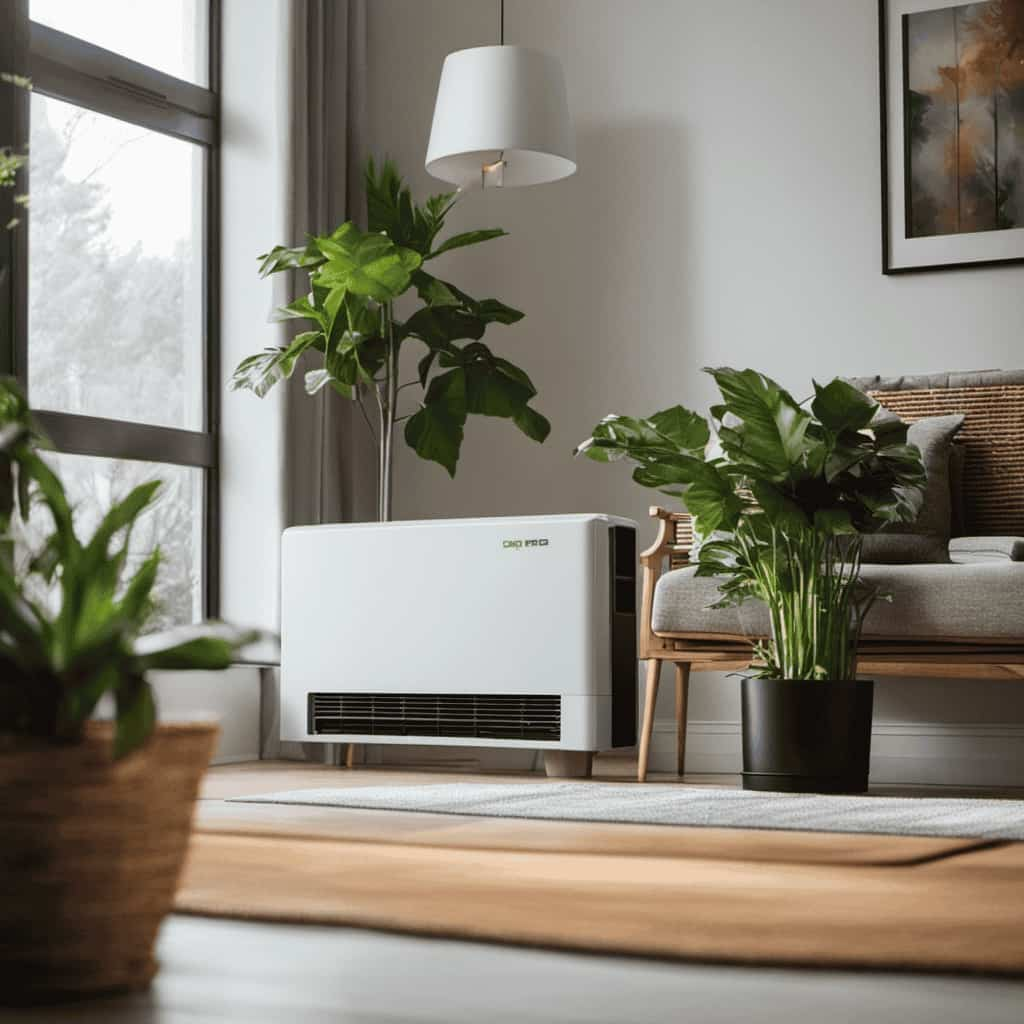
HVAC systems typically have higher upfront installation costs due to the complexity of the system and the need for ductwork. However, they can provide efficient and reliable heating and cooling for larger spaces.
On the other hand, heat pumps have lower installation costs and can provide both heating and cooling functions. They’re especially cost effective in regions with moderate climates. Additionally, heat pumps offer long term savings through their energy efficiency and the potential for lower monthly utility bills.
Transitioning into the next section, let’s now discuss the heating and cooling capacity of HVAC systems and heat pumps.
Heating and Cooling Capacity
To accurately compare HVAC systems and heat pumps, we must evaluate their heating and cooling capacity and their ability to meet the specific needs of a space. The heating and cooling capacity of a system refers to its ability to provide the desired temperature range in a given space. It is essential to choose a system that can adequately heat or cool a room based on its size and insulation. The system’s efficiency also plays a crucial role in determining its heating and cooling capacity. A more efficient system can provide the desired temperature with less energy consumption, resulting in lower utility bills. Here is a comparison table depicting the heating and cooling capacity and efficiency of HVAC systems and heat pumps:
| System | Heating Capacity | Cooling Capacity | Efficiency |
|---|---|---|---|
| HVAC | X | X | X |
| Heat Pump | X | X | X |
Note: The values in the table will vary depending on the specific model and brand of the system.
Environmental Impact
When comparing HVAC systems and heat pumps, it’s essential to consider their environmental impact.
Three key points to assess are the energy efficiency ratings, emissions and pollutants, and renewable energy options.
These factors directly contribute to the system’s overall impact on the environment, making it crucial to evaluate their performance in each category.
Energy Efficiency Ratings
We have analyzed the energy efficiency ratings of various HVAC systems and heat pumps to determine their environmental impact. Energy efficiency ratings provide valuable information on the energy-saving capabilities of these systems and their potential to reduce energy consumption and minimize environmental impact.
By conducting an energy consumption analysis, we can identify the most energy-efficient options available in the market. This analysis involves assessing the energy consumption patterns of different systems, comparing their energy efficiency ratings, and considering factors such as seasonal energy efficiency ratio (SEER) and heating seasonal performance factor (HSPF).
Emissions and Pollutants
In assessing the environmental impact of HVAC systems and heat pumps, we must consider the emissions and pollutants they release into the atmosphere. These emissions can have a significant effect on air quality, contributing to the deterioration of local and global environments.
One key factor to consider is the level of emission reduction achieved by the system. Modern HVAC systems and heat pumps have made significant advancements in reducing emissions compared to older models. This is primarily due to the use of more efficient combustion processes and the integration of advanced filtration systems.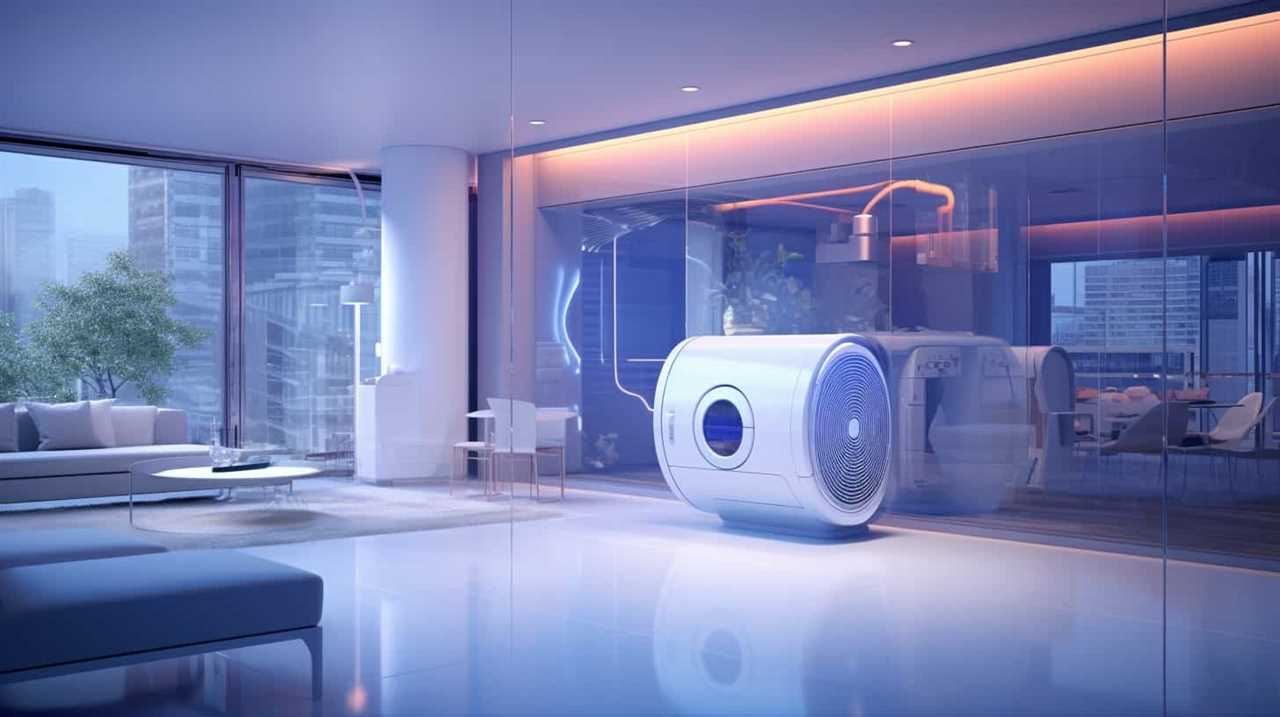
Renewable Energy Options
To evaluate the environmental impact of HVAC systems and heat pumps, we must consider the available renewable energy options and their effectiveness.
Renewable energy sources offer a sustainable and environmentally friendly alternative to traditional energy sources. Solar power, for example, harnesses the energy of the sun to generate electricity and heat. Wind power utilizes the kinetic energy from wind to produce electricity. Geothermal energy taps into the heat stored beneath the Earth’s surface. Biomass energy involves the conversion of organic materials into fuel.
These renewable energy sources can significantly reduce greenhouse gas emissions and dependence on fossil fuels. In addition, government incentives such as tax credits and grants can further encourage the adoption of renewable energy systems.
Installation Process
First, we need to gather all the necessary tools and equipment for the installation process. This includes items such as screwdrivers, wrenches, pliers, and a voltage tester. It’s important to ensure that all equipment is compatible with the HVAC system or heat pump being installed. Once the tools and equipment are gathered, we can proceed with the installation.
During the installation process, there are several key steps that need to be followed. These steps include:
Removing the old HVAC system or heat pump: This involves disconnecting electrical connections, removing any mounting brackets, and carefully removing the old unit from its location.
Preparing the installation area: This includes cleaning the area, ensuring proper ventilation, and making any necessary modifications to accommodate the new system.
Installing the new HVAC system or heat pump: This step involves following the manufacturer’s instructions for installation, connecting electrical wiring, securing the unit in place, and testing for proper operation.
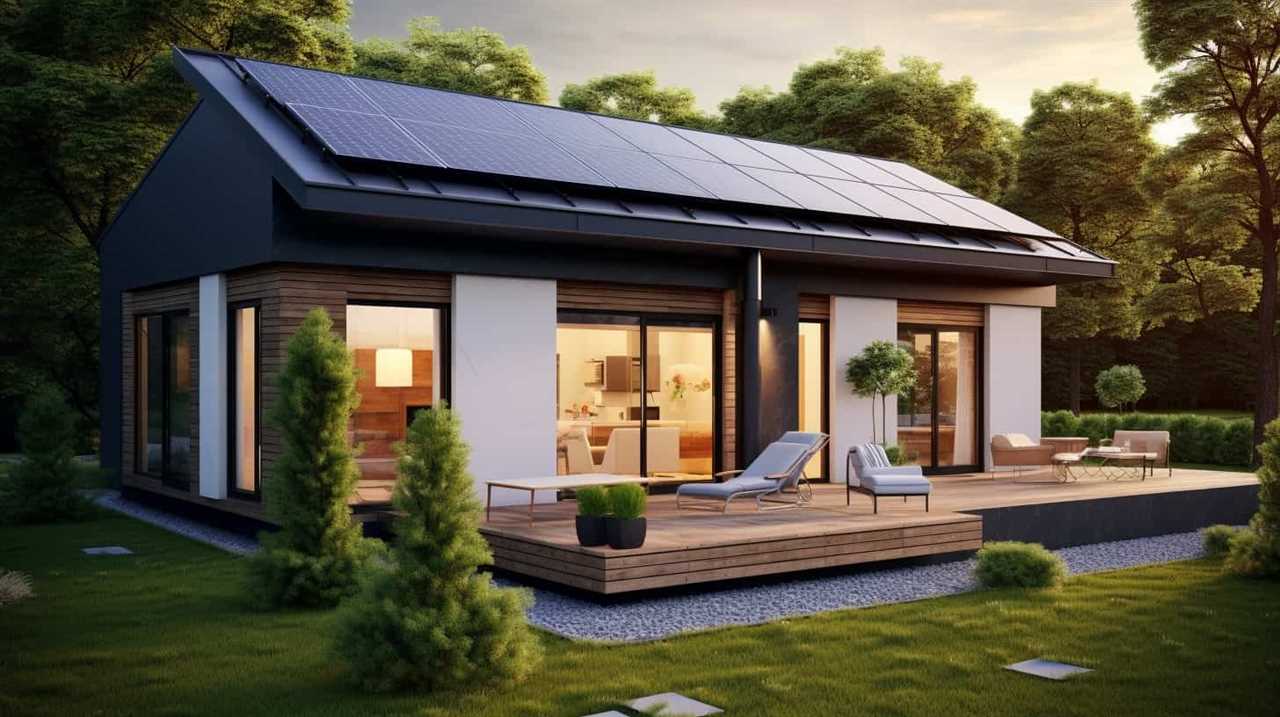
Maintenance Requirements
When it comes to maintenance requirements for HVAC systems and heat pumps, there are several key points to consider.
Firstly, regular seasonal service is essential to ensure optimal performance and efficiency. This includes tasks such as inspecting and cleaning the system, as well as checking for any potential issues.
Secondly, regular filter replacement is crucial to maintain good indoor air quality and prevent strain on the system. The frequency of filter replacement will depend on various factors, such as the type of filter and the level of usage.
Seasonal Service Needs
We should prioritize regular maintenance for our HVAC systems and heat pumps to ensure optimal performance throughout the year. Seasonal maintenance is essential for keeping these systems running efficiently and preventing costly breakdowns. Here is a service schedule that should be followed:
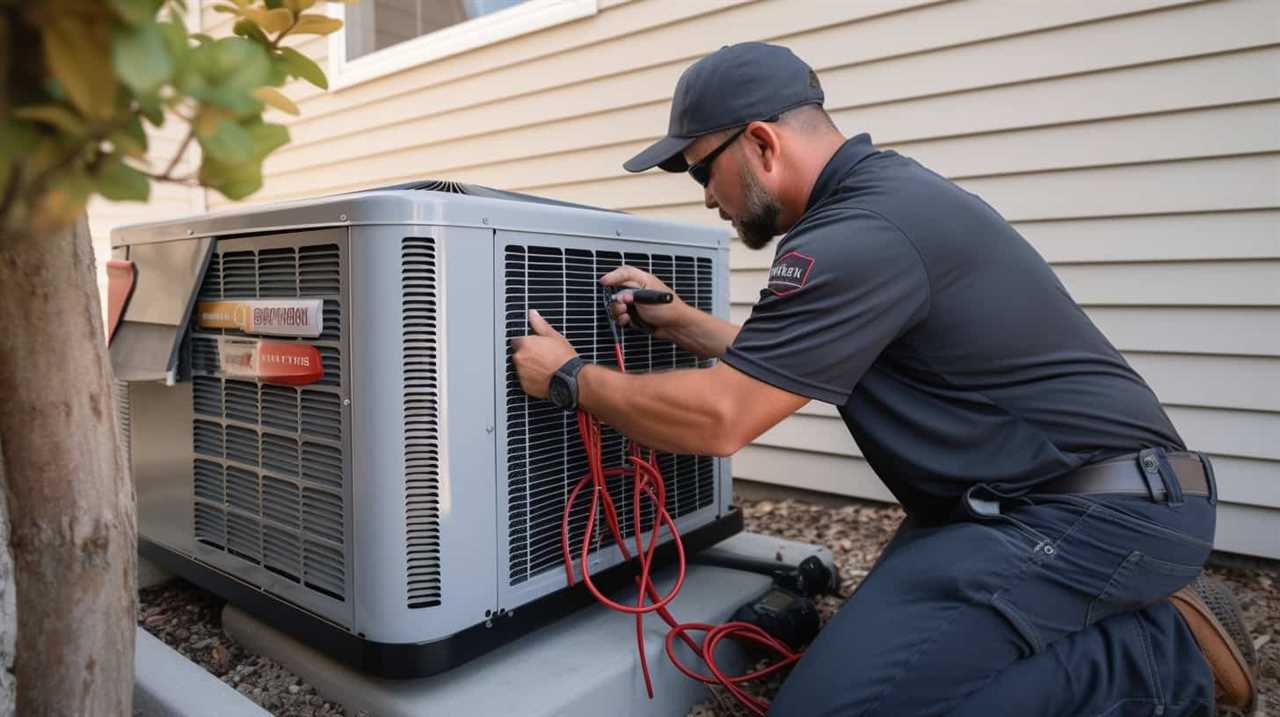
Spring: Before the summer heat arrives, have a professional inspect and clean the system, including the coils, filters, and ductwork. This will ensure proper airflow and prevent any potential issues.
Fall: As the weather starts to cool down, it’s important to prepare the HVAC system for the winter months. This includes checking the heating components, such as the burner and igniter, and replacing any worn-out parts.
Year-round: Regularly change the filters every one to three months to maintain good air quality and prevent dust and debris from clogging the system.
Cleaning and Inspections
To ensure optimal performance and longevity of our HVAC systems and heat pumps, regular cleaning and inspections are necessary.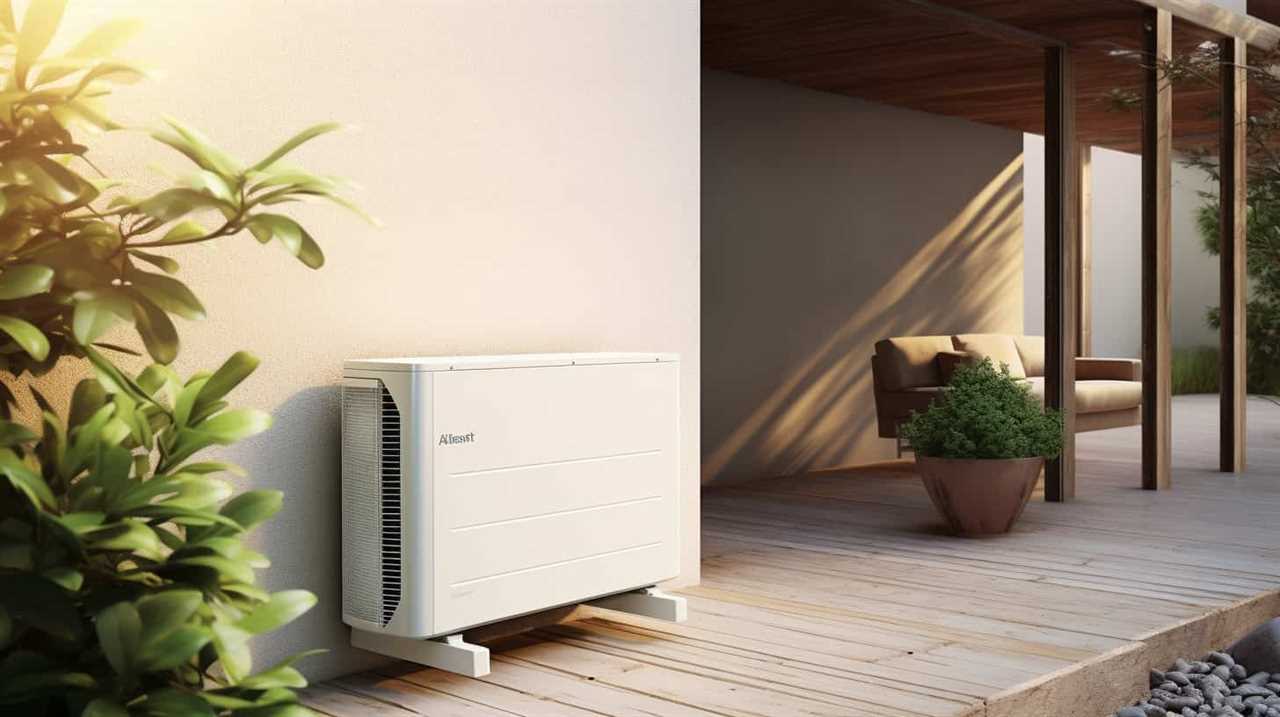
When it comes to cleaning methods, there are a few options available. The most common method is using a combination of brushes, vacuums, and compressed air to remove dust and debris from the system. It’s important to clean both the indoor and outdoor units, as well as the air ducts and filters.
As for inspection frequency, it’s recommended to have a professional technician inspect the system at least once a year. This inspection should include a thorough examination of all components, checking for any signs of wear or damage.
Filter Replacement Frequency
For optimal maintenance of our HVAC systems and heat pumps, regular filter replacement is necessary, and we should adhere to a recommended schedule. The frequency of filter replacement depends on various factors such as the type of filter, the level of pollutants in the air, and the usage of the system.
Here is a recommended filter replacement schedule to ensure optimal performance and air quality improvement: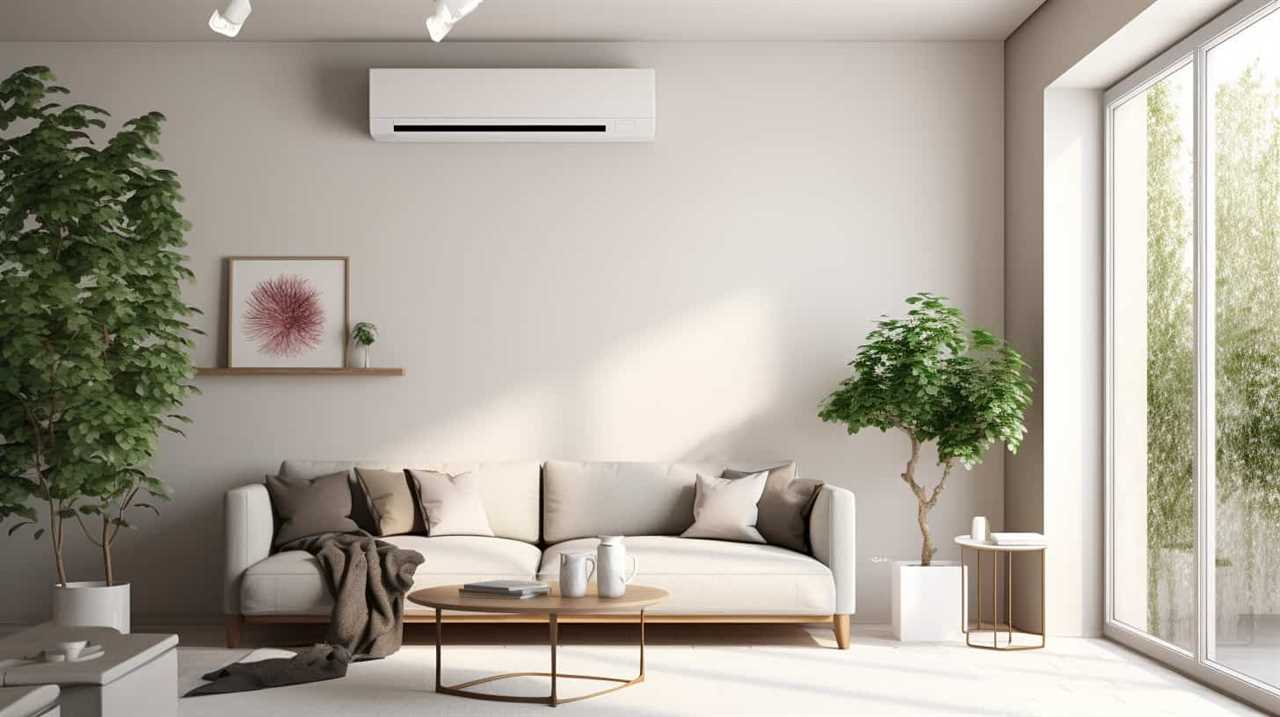
Standard filters: These should be replaced every 30-60 days, depending on the air quality in your area and the usage of your HVAC system.
High-efficiency filters: These filters have a longer lifespan and typically need replacement every 90 days. However, it’s essential to check the manufacturer’s recommendations for your specific filter.
HEPA filters: These filters are highly efficient in removing allergens and pollutants from the air. They generally have a lifespan of 6-12 months, but it’s still crucial to follow the manufacturer’s guidelines for replacement.
Lifespan and Durability
Comparing the lifespan and durability of HVAC systems and heat pumps is crucial when making an informed decision.
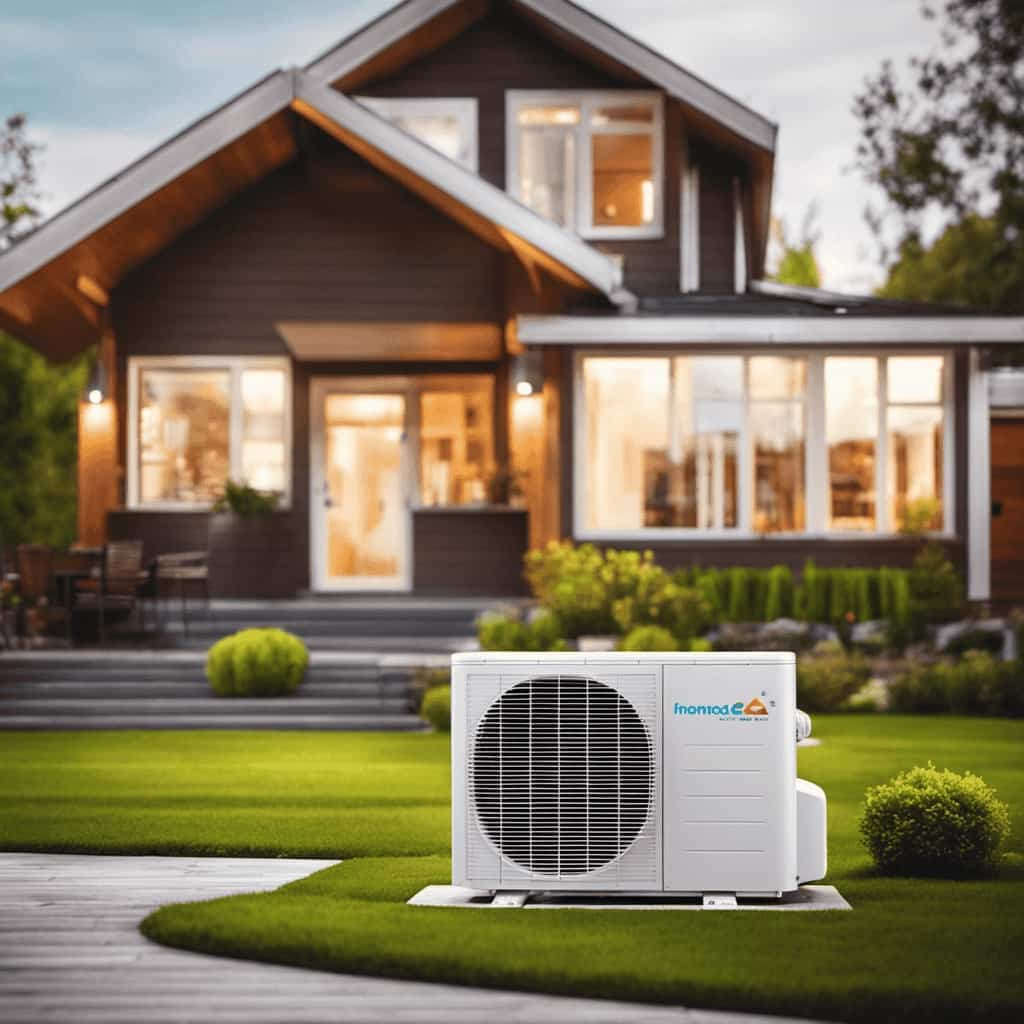
When it comes to lifespan comparison, HVAC systems typically last between 15 to 20 years, while heat pumps have a lifespan of around 10 to 15 years. However, it’s important to note that these numbers can vary depending on various factors such as the quality of installation, maintenance, and usage patterns.
Durability ratings are another important consideration. HVAC systems are known for their robust construction, with components like the compressor and condenser built to withstand demanding conditions. Heat pumps, on the other hand, have fewer moving parts and are generally more durable due to their simpler design.
It’s essential to evaluate the lifespan and durability of both options to ensure longevity and reliable performance.
Noise Level
How loud are HVAC systems and heat pumps, and what impact does the noise level have on overall comfort?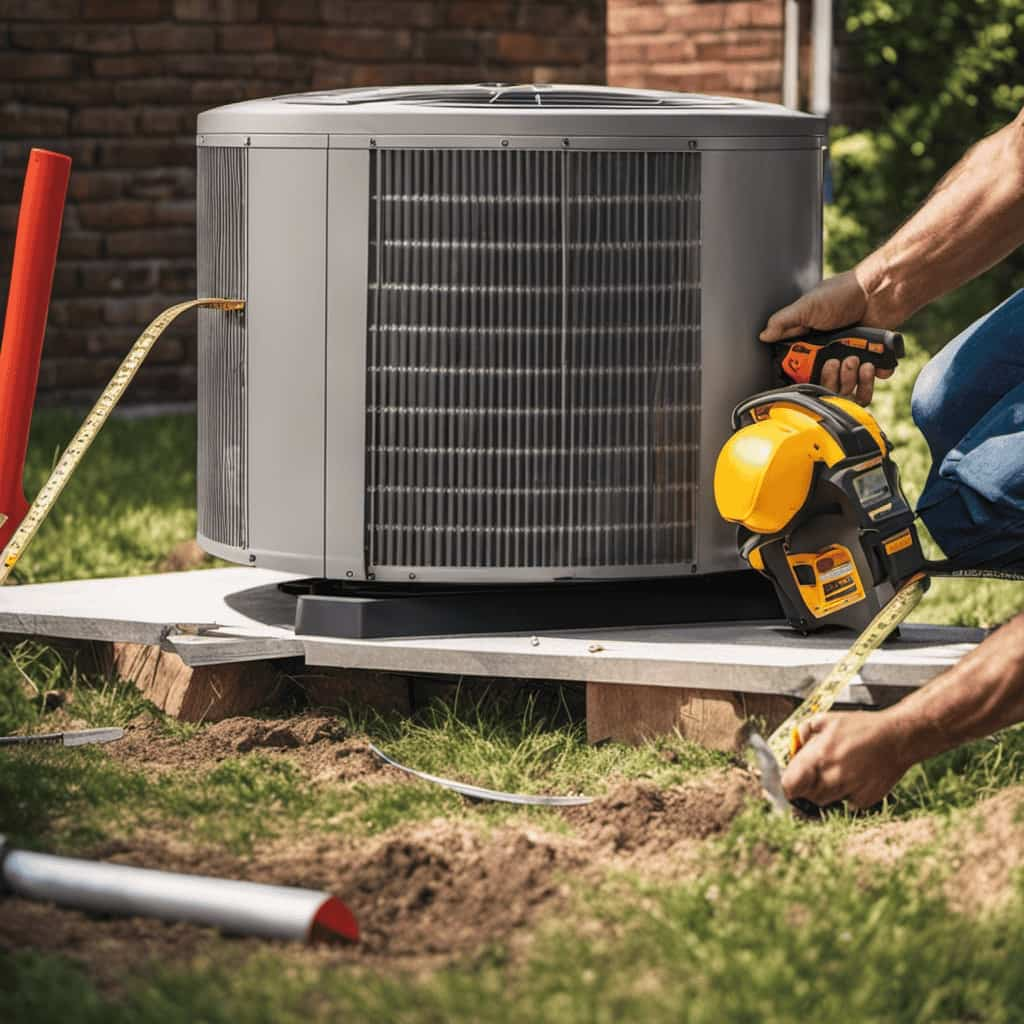
When it comes to sound quality, it’s crucial to consider the decibel levels produced by these systems. Here are three key points to keep in mind regarding noise level:
Decibel levels: HVAC systems and heat pumps can produce varying levels of noise, measured in decibels (dB). It’s important to choose a system that operates at a noise level that’s comfortable for you and your household.
Indoor comfort: Excessive noise from HVAC systems and heat pumps can be disruptive and affect the overall comfort of your home. It’s essential to select a system that operates quietly to prevent any disturbances or distractions.
Sound insulation: Proper insulation can help reduce noise transmission from the HVAC system. Investing in sound-dampening materials and ensuring proper installation can significantly improve the overall sound quality and comfort in your home.

Control and Automation Features
We can assess the control and automation features of HVAC systems and heat pumps by examining their ability to regulate temperature and optimize energy efficiency. One important aspect to consider is smart home integration, which allows the system to be connected to other smart devices in the home, such as thermostats and sensors.
This integration enables users to control and monitor their HVAC system remotely, even when they’re away from home. Another crucial feature is remote control capabilities, which allow users to adjust temperature settings and access system controls from anywhere using a smartphone or other smart devices.
These control and automation features not only provide convenience but also contribute to energy savings by allowing users to optimize the system’s performance based on their preferences and occupancy patterns.
Now, let’s move on to the next section to discuss warranty and customer support.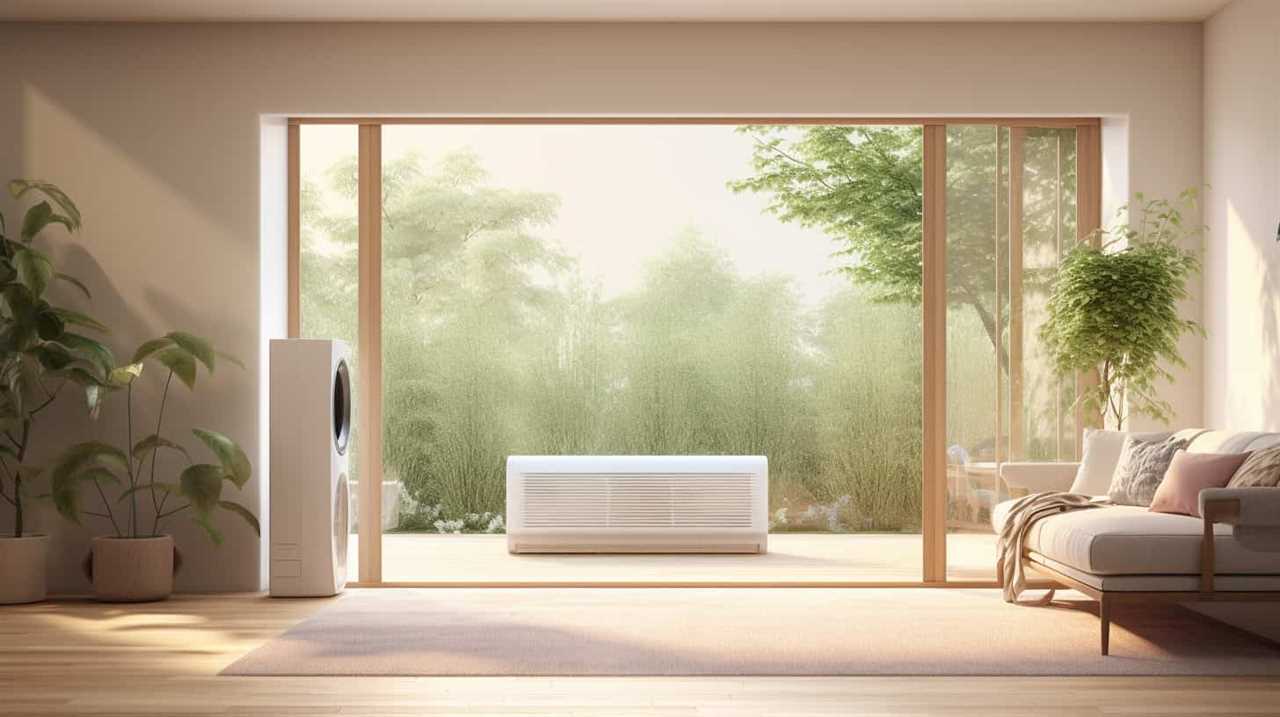
Warranty and Customer Support
When comparing HVAC systems and heat pumps, it’s important to consider the differences in warranty coverage. This includes understanding what’s covered under the warranty and for how long.
Additionally, it’s crucial to evaluate the availability of 24/7 customer assistance for any potential issues or concerns that may arise.
Taking these factors into account ensures that you select a system with reliable warranty coverage and accessible customer support.
Warranty Coverage Differences
We will compare the warranty coverage and customer support differences between HVAC systems and heat pumps.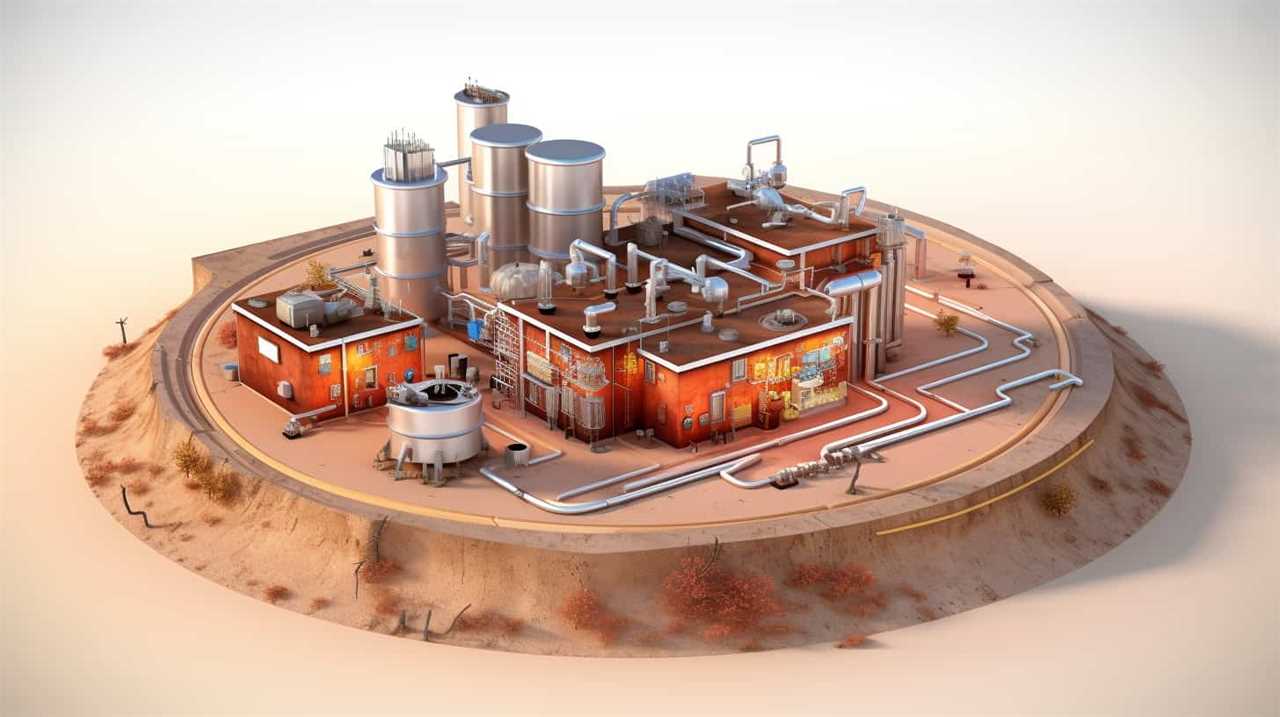
When it comes to warranty claims, there are some key differences to consider between the two systems:
Coverage Terms: HVAC systems typically come with a longer warranty period compared to heat pumps. This means that you may have more time to make a warranty claim and get the necessary repairs or replacements done.
Parts and Labor: Another difference lies in the coverage for parts and labor. HVAC systems often have separate coverage for both, whereas heat pumps may have combined coverage. It’s important to understand what’s included in the warranty and what you may be responsible for.
Customer Support: The level of customer support provided by the manufacturer or dealer can also vary. Some HVAC systems may come with additional support services such as 24/7 technical assistance or priority scheduling for repairs.
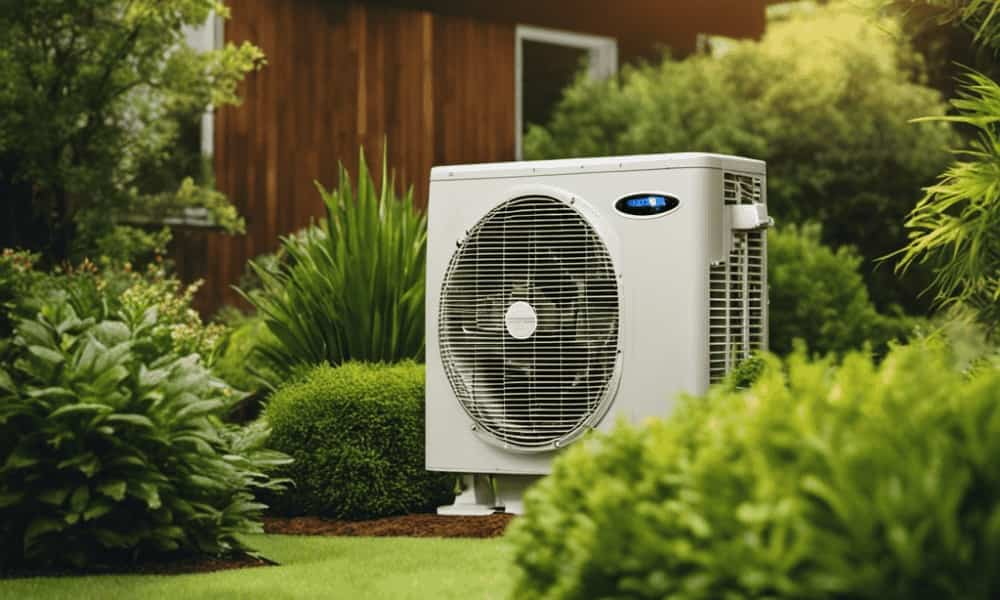
Understanding these warranty coverage differences can help you make an informed decision when choosing between an HVAC system and a heat pump.
24/7 Customer Assistance
To ensure a smooth and hassle-free experience, it’s essential to consider the level of customer assistance, including warranty coverage and customer support, provided by the manufacturer or dealer.
When comparing HVAC systems and heat pumps, customer assistance plays a crucial role in ensuring customer satisfaction. Warranty coverage is an important aspect to consider, as it provides protection against potential defects or malfunctions. It’s essential to understand the terms and duration of the warranty, as well as any limitations or exclusions that may apply.
Additionally, customer support is vital for troubleshooting and addressing any issues that may arise during the installation or operation of the system. Manufacturers or dealers that offer prompt and knowledgeable customer support can greatly enhance the overall customer experience. It’s beneficial to inquire about the availability of troubleshooting tips or resources that can assist in resolving common issues without the need for professional assistance.
Frequently Asked Questions
Can I Use a Heat Pump in Extremely Cold Climates?
Yes, you can use a heat pump in extremely cold climates. However, heat pump efficiency decreases as the temperature drops. In comparison, a furnace is typically more effective in providing heat in extremely cold conditions.
How Long Does It Typically Take to Install an HVAC System?
On average, HVAC system installation takes a few days, but it can be as quick as a lightning bolt or as slow as molasses, depending on factors such as system complexity, ductwork modifications, and the size of the project.
Are There Any Government Incentives or Rebates Available for Purchasing an Energy-Efficient HVAC System?
Yes, there are government incentives and rebates available for purchasing an energy-efficient HVAC system. These incentives are designed to promote energy efficiency and can help offset the cost of the system.
Can I Control and Monitor My HVAC System Remotely Through a Smartphone App?
Yes, we can control and monitor our HVAC system remotely through a smartphone app. This allows us to adjust temperature, fan speed, and more, resulting in optimized energy consumption and increased convenience.
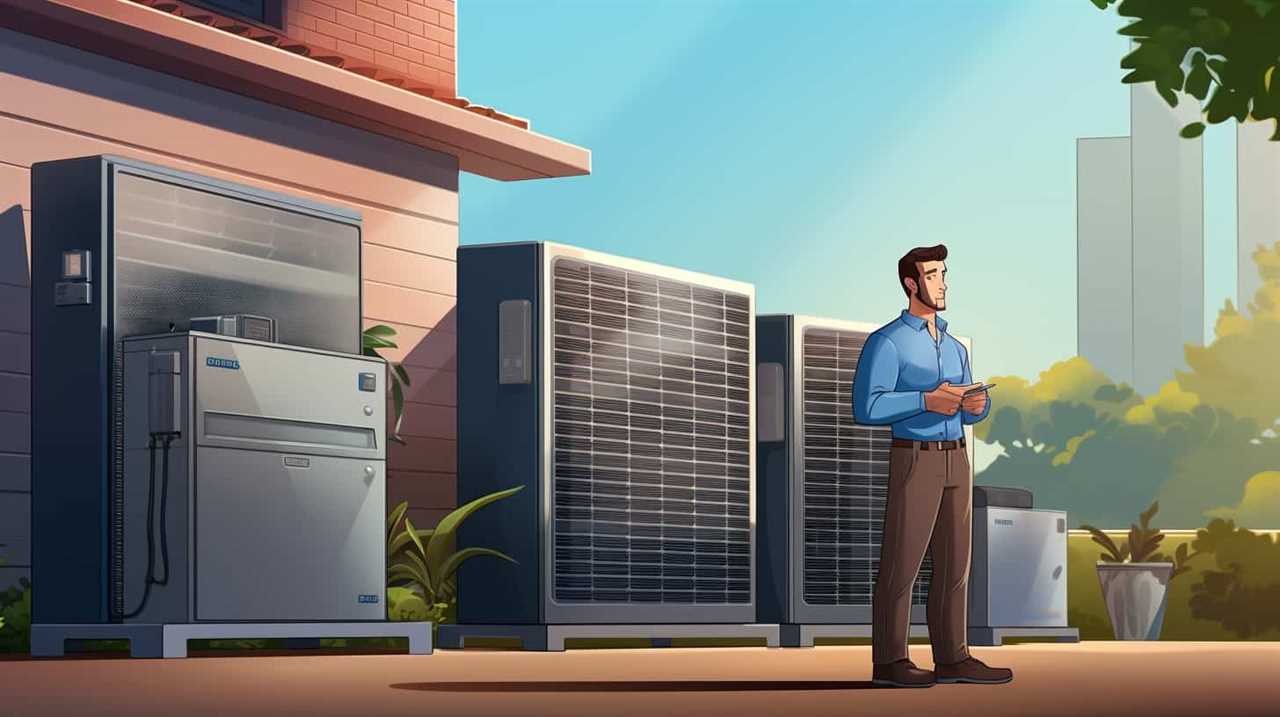
What Is the Average Lifespan of an HVAC System or Heat Pump?
The average lifespan of an HVAC system or heat pump varies depending on factors such as regular maintenance and usage. Heat pump technology offers benefits such as energy efficiency and durability, which can contribute to a longer lifespan.
What Are the Main Differences Between HVAC Systems and Heat Pump Systems?
When considering hvac vs heat pump systems comparison, it’s important to understand the differences. HVAC systems, or heating, ventilation, and air conditioning, provide both heating and cooling capabilities. On the other hand, heat pump systems are more energy-efficient alternatives that can both heat and cool your home by transferring heat from one area to another.
Conclusion
In conclusion, when comparing HVAC systems and heat pumps, it’s essential to consider factors such as:
- Energy efficiency
- Cost
- Capacity
- Environmental impact
- Installation process
- Lifespan
- Noise level
- Control features
By carefully weighing these aspects, you can make an informed decision that meets your specific needs and preferences.
So, why settle for a one-size-fits-all solution when you can choose the best option tailored to your requirements?
HVAC Systems
Comparing Heat Pump Efficiency: Solutions for Electricity Usage

We have some astonishing statistics to share with you.
When it comes to heat pump efficiency, understanding the key factors impacting electricity usage is crucial.
In this article, we’ll compare energy consumption between heat pumps and traditional heating systems.
But that’s not all – we’ll also delve into optimizing heat pump performance for lower electricity usage and explore energy-saving solutions.
Join us as we uncover the secrets to maximizing efficiency and reducing electricity consumption.
Key Takeaways
- SEER and HSPF ratings indicate the efficiency of a heat pump, with higher ratings indicating better performance.
- Climate, insulation, heat pump size, and thermostat settings all impact the electricity usage of a heat pump.
- Heat pumps are more energy-efficient than traditional heating systems, as they transfer heat rather than relying on combustion processes.
- Optimizing heat pump performance through smart thermostats, insulation improvements, regular maintenance, and airflow optimization can reduce electricity usage.
Understanding Heat Pump Efficiency Ratings
We’ll start by exploring the three main heat pump efficiency ratings.
When it comes to heat pump efficiency, it’s important to understand the standards and measurements used.
The first rating is the Seasonal Energy Efficiency Ratio (SEER), which measures the cooling efficiency of the heat pump over an entire season. The higher the SEER rating, the more efficient the heat pump is.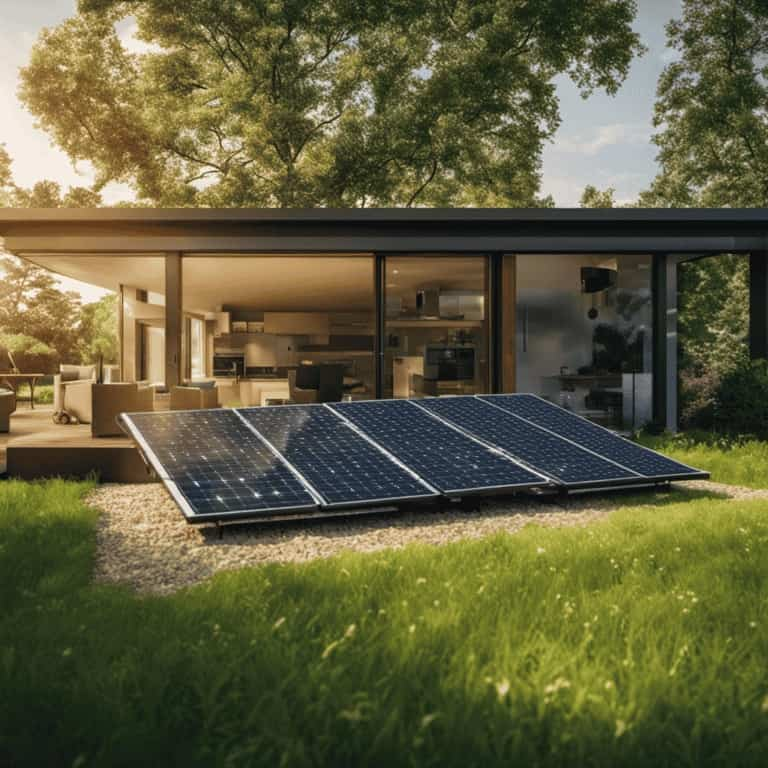
The second rating is the Heating Seasonal Performance Factor (HSPF), which measures the heating efficiency of the heat pump over a season. Again, a higher HSPF rating indicates a more efficient heat pump.
Lastly, we’ve the Coefficient of Performance (COP), which measures the ratio of heat output to the energy input. The higher the COP, the more efficient the heat pump.
Understanding these efficiency ratings is crucial when comparing and selecting a heat pump for optimal energy usage.
Key Factors Impacting Heat Pump Electricity Usage
When considering heat pump electricity usage, there are several key factors that can significantly impact efficiency. To conduct a thorough heat pump energy consumption analysis and maximize efficiency, it’s essential to take into account the following factors: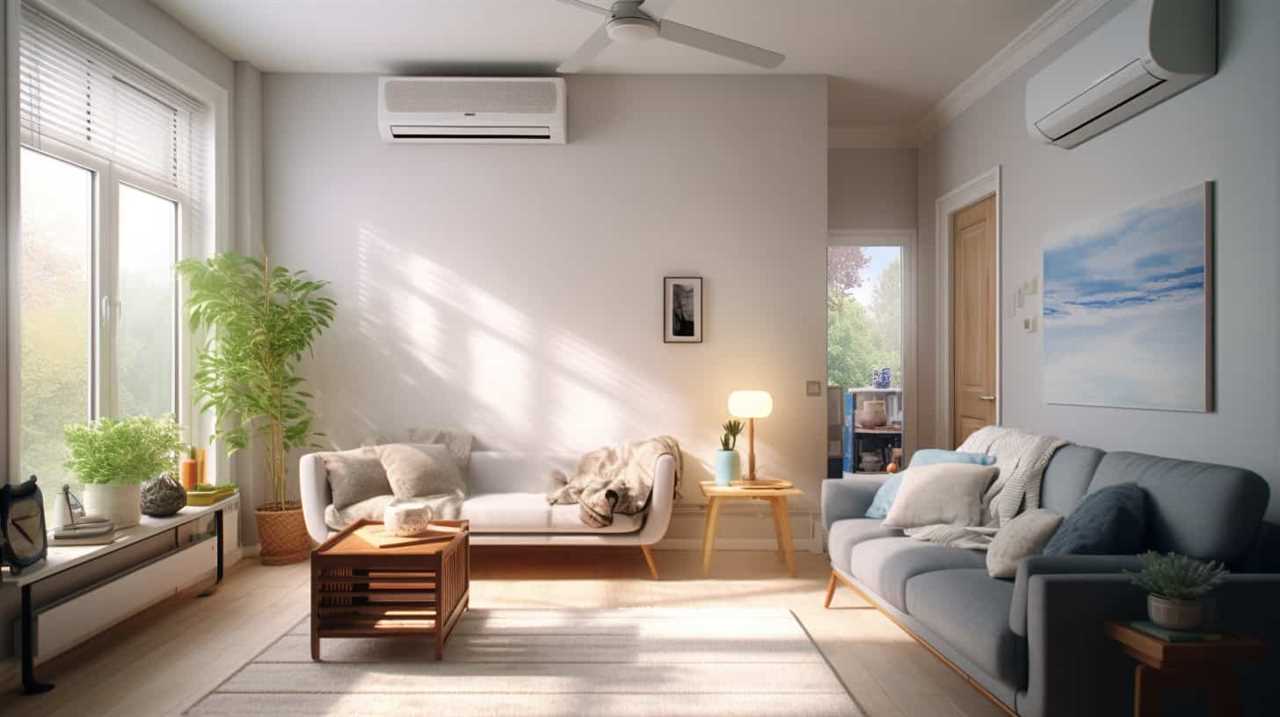
Climate: The temperature and humidity levels in your region can affect how hard the heat pump needs to work to maintain desired indoor temperatures.
Insulation: Proper insulation in your home helps to minimize heat loss, reducing the workload on the heat pump.
Sizing: Choosing the right-sized heat pump for your space is crucial. An oversized or undersized unit can lead to inefficient operation and higher electricity usage.
Thermostat settings: Optimal thermostat settings can help regulate temperature effectively, avoiding unnecessary energy consumption.

Maintenance: Regular maintenance, including cleaning filters and checking refrigerant levels, ensures that the heat pump operates efficiently and minimizes electricity usage.
Comparing Energy Consumption: Heat Pump Vs Traditional Heating Systems
There are several key differences in energy consumption between heat pumps and traditional heating systems.
When comparing the two, it becomes evident that heat pumps are a more energy efficient alternative for cost-effective heating. Heat pumps work by transferring heat from the outside air or ground into a building, rather than generating heat. This significantly reduces the amount of electricity required to provide heating.
Traditional heating systems, on the other hand, typically use combustion processes to generate heat, which can be quite energy-intensive.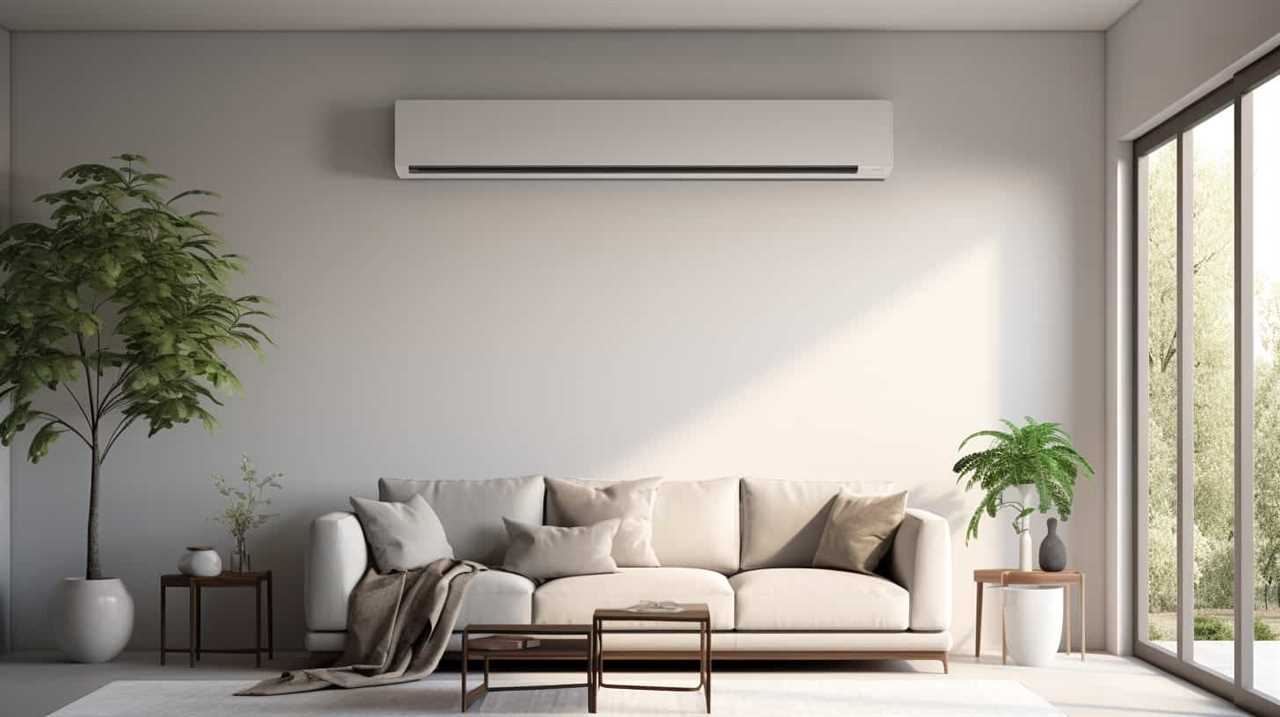
Heat pumps also have the advantage of being able to provide both heating and cooling, further increasing their energy efficiency.
Optimizing Heat Pump Performance for Lower Electricity Usage
To optimize heat pump performance and achieve lower electricity usage, we can implement various strategies and techniques. Here are five key approaches that can help in this endeavor:
Smart Thermostat Integration: By integrating a smart thermostat with your heat pump system, you can have greater control over temperature settings and scheduling, allowing you to optimize energy usage based on your specific needs and preferences.
Insulation Improvements: Enhancing the insulation of your home can significantly reduce heat loss and improve the overall efficiency of your heat pump. Proper insulation in walls, floors, and ceilings minimizes the need for your heat pump to work harder to maintain desired temperatures.
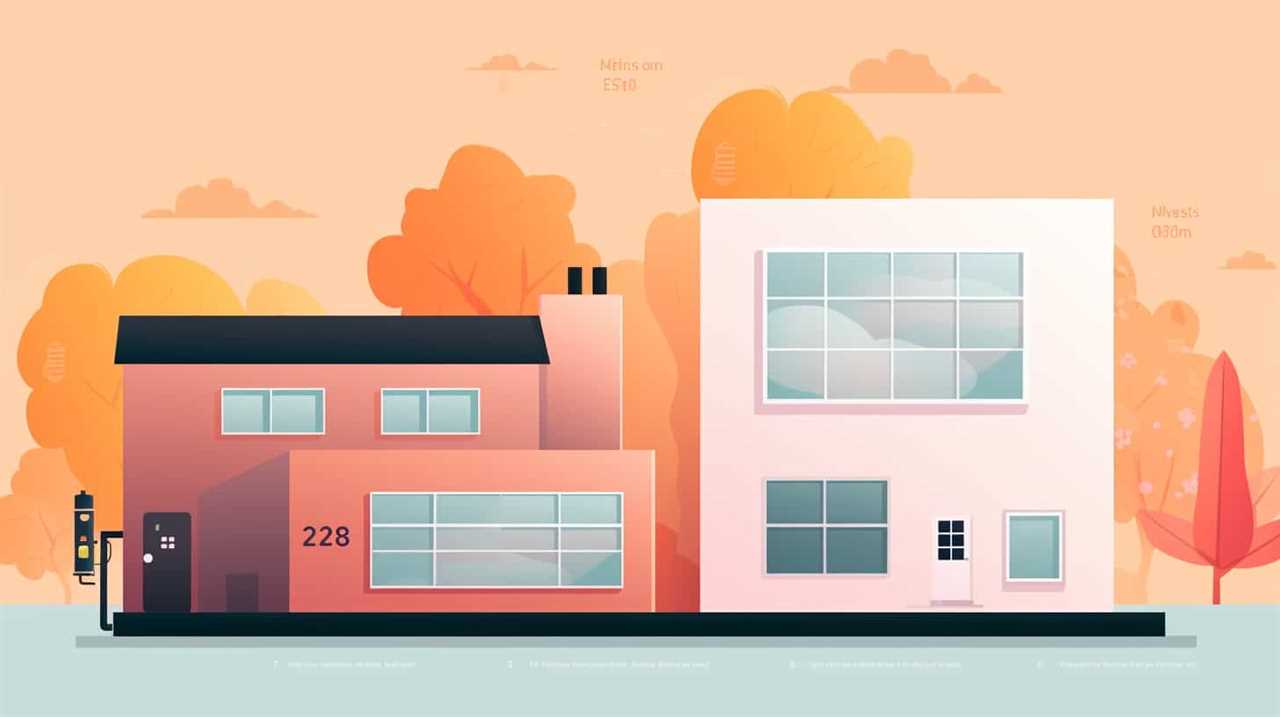
Regular Maintenance: Regularly servicing your heat pump ensures that it operates at its peak efficiency. This includes cleaning or replacing filters, checking refrigerant levels, and inspecting the overall functioning of the system.
Airflow Optimization: Ensuring proper airflow by keeping vents unobstructed and clean allows for efficient heat distribution throughout your home, reducing the workload on your heat pump.
Efficient Temperature Settings: Adjusting your thermostat to slightly lower temperatures in the winter and slightly higher temperatures in the summer can lead to noticeable energy savings without sacrificing comfort.
Energy-Saving Solutions for Heat Pump Electricity Consumption
To reduce heat pump electricity consumption, we can implement energy-saving solutions that optimize efficiency and minimize energy waste. Two effective strategies for achieving this are smart thermostat integration and insulation improvements. By integrating a smart thermostat with your heat pump system, you can take advantage of advanced features such as programmable schedules and remote control options. This allows you to optimize the temperature settings and reduce unnecessary energy usage. Additionally, improving insulation in your home can greatly reduce heat loss and improve the overall efficiency of your heat pump. Proper insulation helps to maintain a consistent indoor temperature, reducing the workload on the heat pump and minimizing electricity consumption. By implementing these energy-saving solutions, you can effectively reduce your heat pump’s electricity usage and save on energy costs.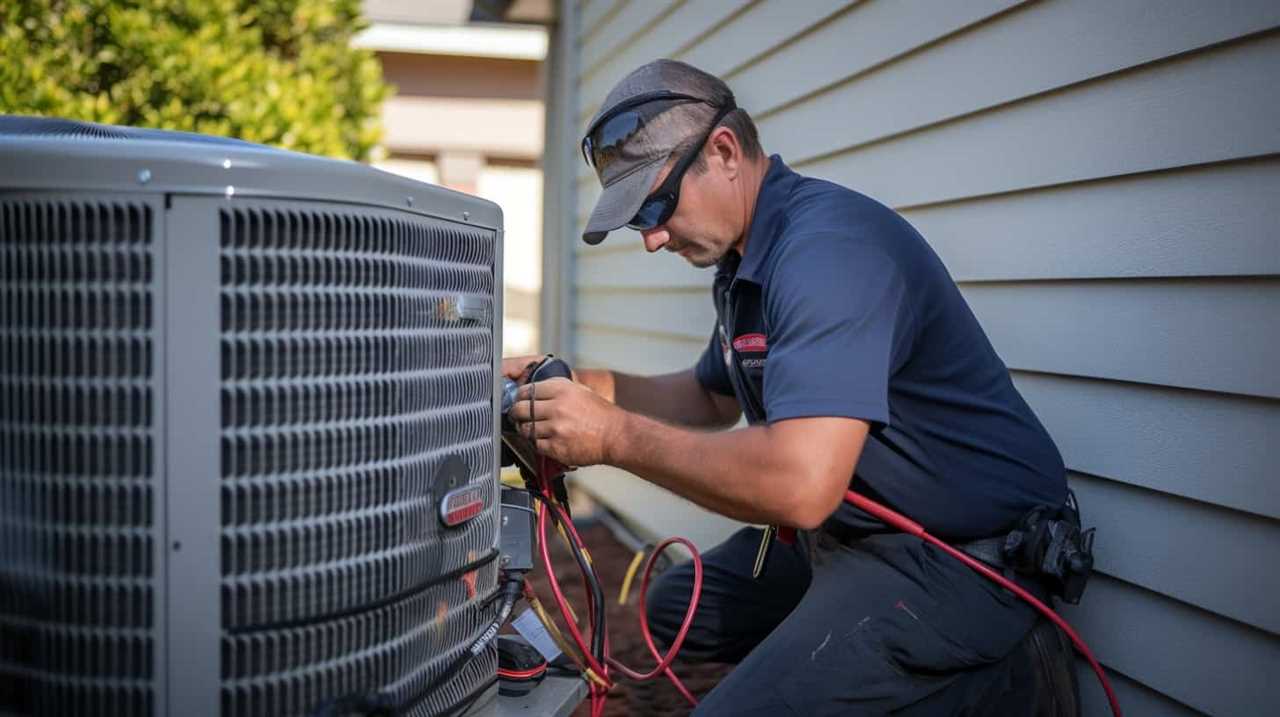
| Energy-Saving Solution | Description | Benefits |
|---|---|---|
| Smart Thermostat Integration | Integrating a smart thermostat with your heat pump system allows for advanced temperature control and scheduling options. This helps optimize energy usage and reduce unnecessary heating and cooling. | – Programmable schedules |
- Remote control options
- Increased energy efficiency | | Insulation Improvements | Improving the insulation in your home reduces heat loss and helps maintain a consistent indoor temperature. This reduces the workload on the heat pump and minimizes electricity consumption. | – Reduced heat loss
- Improved energy efficiency
- Consistent indoor temperature throughout the year |
Frequently Asked Questions
Are There Any Government Incentives or Rebates Available for Installing a Heat Pump?
Yes, there are government incentives and rebates available for installing a heat pump. These incentives can help offset the cost of installation and provide cost savings in the long run due to increased energy efficiency.
How Long Does a Heat Pump Typically Last Before It Needs to Be Replaced?
How long does a heat pump typically last before it needs to be replaced? We’ll explore the heat pump lifespan and the signs of heat pump replacement to help you understand when it’s time for an upgrade.
Can a Heat Pump Be Used to Cool a Home During the Summer Months?
Yes, a heat pump can be used to cool a home during the summer months. It functions by extracting heat from the indoor air and transferring it outside, resulting in a cooler indoor environment.
Are There Any Additional Maintenance Tasks Required for a Heat Pump Compared to Traditional Heating Systems?
There are additional maintenance tasks required for a heat pump compared to traditional heating systems. These tasks include regular filter cleaning or replacement, annual professional inspections, and ensuring proper airflow to optimize energy consumption.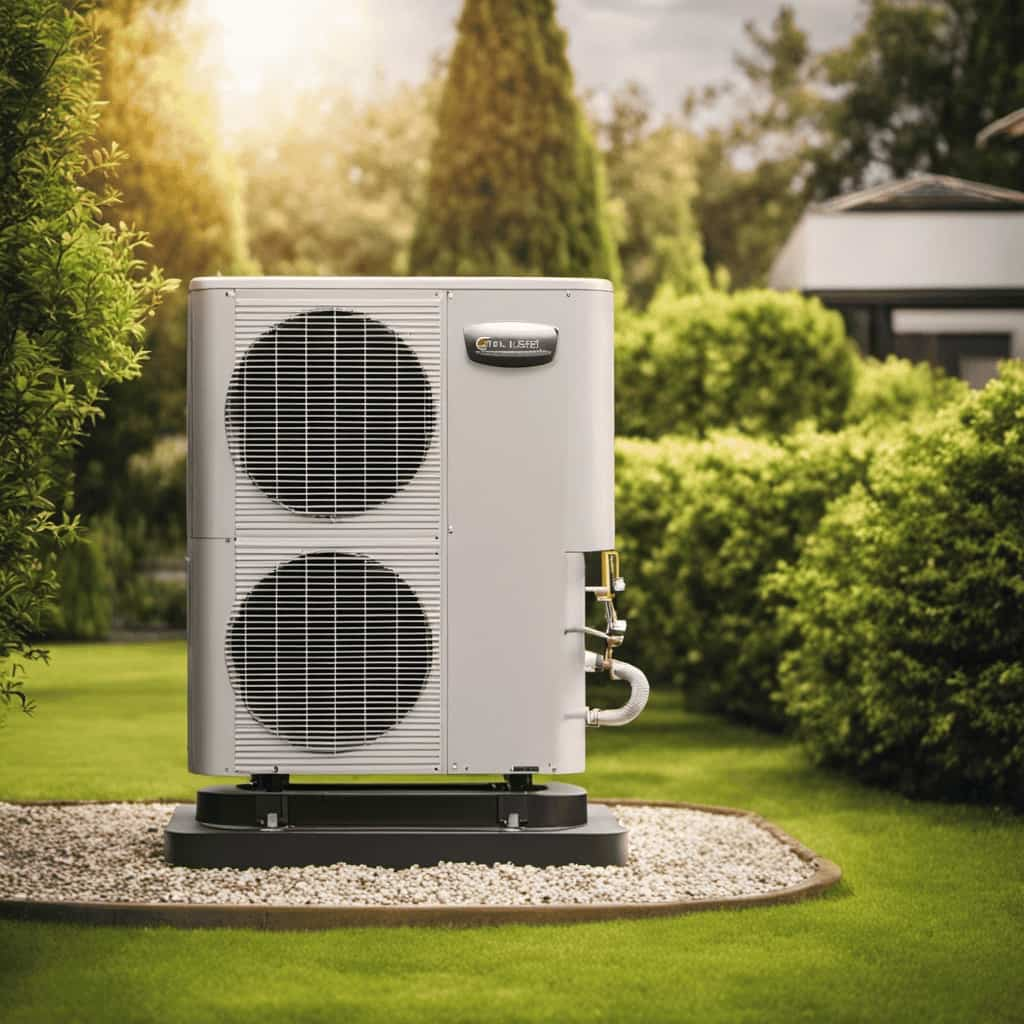
How Does the Efficiency of a Heat Pump Compare to Other Renewable Energy Sources Like Solar Panels or Geothermal Systems?
When comparing heat pump efficiency to other renewable energy sources like solar panels, it’s important to consider the pros and cons. Heat pumps offer efficient heating and cooling, but solar panels provide clean electricity generation.
What Should I Consider When Comparing HVAC Systems and Heat Pumps?
When comparing hvac systems vs heat pump, there are a few key factors to consider. First, evaluate the energy efficiency ratings of each system. The Seasonal Energy Efficiency Ratio (SEER) and Heating Seasonal Performance Factor (HSPF) are essential in determining their efficiency. Additionally, take into account the initial cost, installation requirements, and maintenance needs of both options. Lastly, consider the climate you live in, as this can impact the system’s performance and suitability for your home.
Conclusion
In conclusion, after analyzing the efficiency ratings and energy consumption of heat pumps compared to traditional heating systems, it’s clear that heat pumps offer significant advantages in terms of electricity usage.
By optimizing heat pump performance and implementing energy-saving solutions, users can further reduce their electricity consumption.
So, why settle for outdated and inefficient heating systems when heat pumps provide a smarter, more environmentally friendly solution?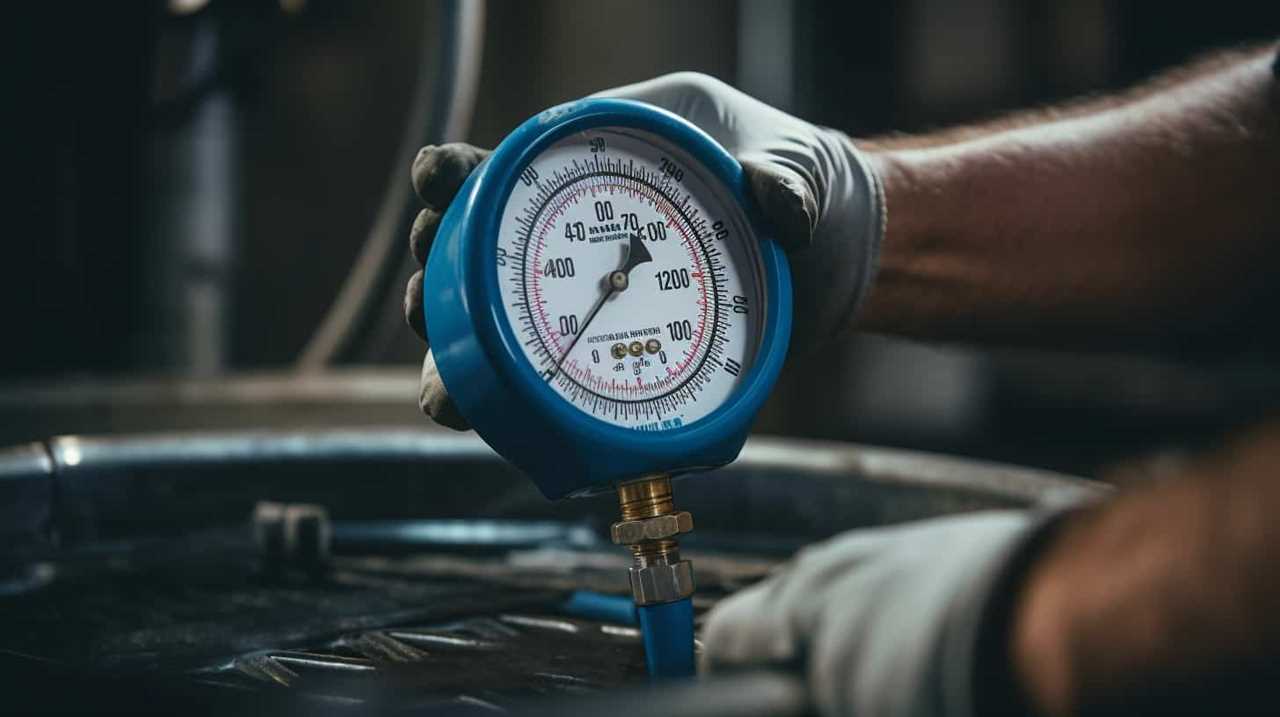
Embrace the future of heating and save both energy and money with heat pumps.
HVAC Systems
Defining ROI: Energy-Efficient Heat Pumps Analysis

We have come across an interesting fact: energy-efficient heat pumps can greatly affect your return on investment (ROI).
In this analysis, we delve into the financial benefits and long-term savings of these innovative devices. By understanding the cost-benefit analysis and factors affecting ROI, you can make informed decisions about implementing energy-efficient heat pumps.
Join us as we explore how this technology can revolutionize your energy consumption and contribute to a more sustainable future.
Key Takeaways
- Calculating ROI helps make informed decisions.
- Heat pumps reduce energy consumption and costs.
- Long-term savings outweigh initial costs.
- Rebates and incentives can reduce upfront costs and increase savings potential.
The Importance of ROI in Energy-Efficient Heat Pumps
We understand the importance of calculating ROI in energy-efficient heat pumps for making informed decisions.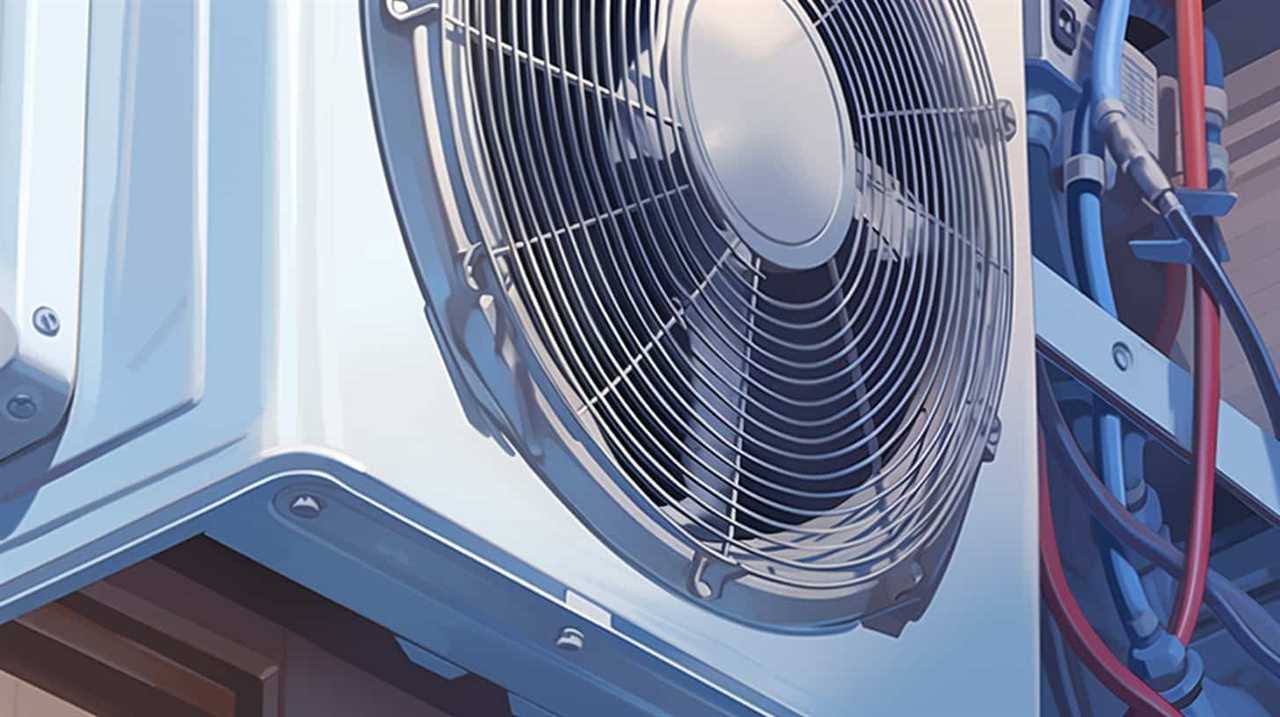
When it comes to investing in energy-efficient heat pumps, it’s crucial to consider the significance of calculating ROI.
By analyzing the relationship between energy savings and return on investment, we can determine the financial benefits of implementing energy-efficient heat pumps in our systems.
Calculating ROI allows us to evaluate the cost-effectiveness of these heat pumps and make informed decisions regarding their adoption.
By considering factors such as upfront costs, energy savings, and maintenance expenses, we can determine the payback period and overall financial viability of these investments.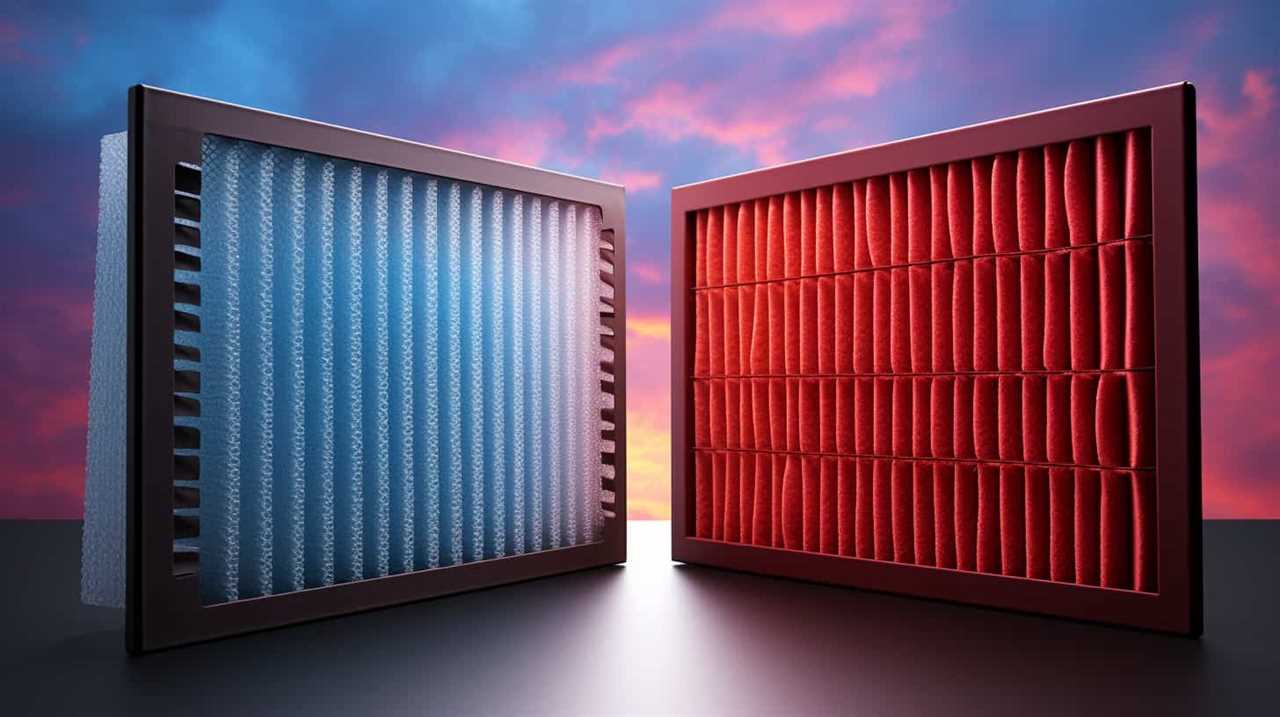
This analysis empowers us to prioritize and allocate resources effectively, ensuring that our energy systems aren’t only efficient but also financially sustainable.
Understanding the Cost-Benefit Analysis of Heat Pump Energy Efficiency
When conducting a cost-benefit analysis of heat pump energy efficiency, it’s essential to consider the financial implications and potential savings. A key component of this analysis is the cost effectiveness analysis, which evaluates the financial benefits of energy consumption reduction achieved through heat pump efficiency.
By comparing the initial investment in energy-efficient heat pumps with the projected savings in energy costs over the system’s lifespan, businesses and homeowners can determine the viability of implementing these technologies. The savings are achieved through reduced energy consumption, as heat pumps utilize renewable energy sources and operate more efficiently than traditional heating and cooling systems.
This cost effectiveness analysis provides a clear understanding of the financial benefits associated with energy-efficient heat pumps, allowing decision-makers to make informed choices regarding their adoption.
Now, let’s delve into the factors that can affect the return on investment (ROI) in energy-efficient heat pumps.
Factors Affecting ROI in Energy-Efficient Heat Pumps
As we explore the factors affecting ROI in energy-efficient heat pumps, it’s important to consider the upfront costs, energy savings, and maintenance expenses. These factors play a crucial role in determining the overall financial benefits of investing in energy-efficient heat pumps.
Firstly, upfront costs are a significant factor in calculating ROI. Energy-efficient heat pumps generally have a higher initial cost compared to traditional heating systems. However, the long-term energy savings they provide can offset this initial expense.
The potential for substantial energy savings is another factor to consider. Energy-efficient heat pumps utilize advanced technology to maximize energy efficiency, resulting in lower energy consumption and reduced utility bills.
Additionally, maintenance expenses should be taken into account when evaluating ROI. While energy-efficient heat pumps require regular maintenance to ensure optimal performance, they generally have lower maintenance costs compared to traditional heating systems.
By considering these factors, we can better understand the potential benefits of investing in energy-efficient heat pumps.
Now, let’s move on to the next section where we’ll analyze the financial benefits of these innovative systems.
Analyzing the Financial Benefits of Energy-Efficient Heat Pumps
To fully understand the financial benefits of energy-efficient heat pumps, we’ll analyze the cost savings and return on investment they offer.
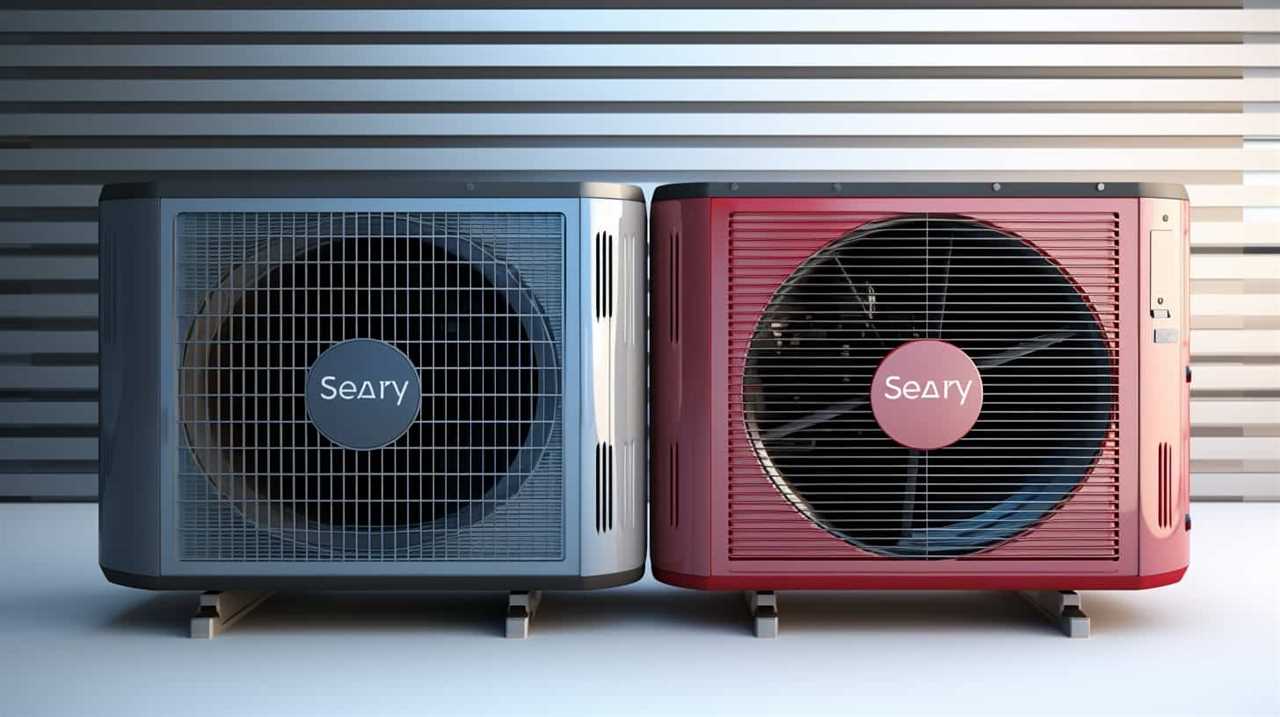
When it comes to the financial implications of energy-efficient heat pumps, the most significant advantage lies in the energy savings they provide. By utilizing advanced technology and efficient design, these heat pumps can significantly reduce energy consumption compared to traditional heating methods. This translates into lower energy bills for homeowners and businesses, resulting in substantial cost savings over time.
Additionally, the return on investment for energy-efficient heat pumps is often quite favorable. While the upfront costs may be higher than conventional heating systems, the long-term savings and reduced energy consumption make them a financially sound choice.
Evaluating the Long-Term Savings of Energy-Efficient Heat Pumps
We will assess the long-term savings of energy-efficient heat pumps and determine their financial viability.
When evaluating the performance of energy-efficient heat pumps and comparing models, the following factors should be considered:
Energy Efficiency: Look for heat pumps with high energy efficiency ratings, which indicate lower energy consumption and potential cost savings over time.
Operational Costs: Consider the maintenance and repair costs associated with different heat pump models. Lower operational costs can contribute to long-term savings.
Lifespan: Evaluate the expected lifespan of the heat pump models being compared. Longer lifespans can result in greater overall savings.
Rebates and Incentives: Research available rebates and incentives for energy-efficient heat pumps. Take advantage of these programs to maximize savings.

Frequently Asked Questions
How Does the Installation Process of Energy-Efficient Heat Pumps Affect the Roi?
The installation process of energy-efficient heat pumps significantly impacts the ROI. By optimizing the installation, we can ensure maximum energy savings, leading to a higher return on investment and increased efficiency for our innovative audience.
Are There Government Incentives or Rebates Available for Investing in Energy-Efficient Heat Pumps?
Yes, there are government incentives and rebates available for investing in energy-efficient heat pumps. These incentives provide financial benefits that can significantly impact the return on investment for individuals and businesses.
What Are the Maintenance Requirements for Energy-Efficient Heat Pumps and How Do They Impact the Overall Roi?
Maintenance costs for energy-efficient heat pumps can impact the overall ROI. Regular maintenance ensures optimal performance and extends the lifespan of the system. However, these costs are outweighed by the long-term savings in energy consumption.
How Does the Climate and Geographical Location Affect the Efficiency and ROI of Energy-Efficient Heat Pumps?
The climate impact and geographical factors play a significant role in the efficiency and ROI of energy-efficient heat pumps. These variables determine the unit’s performance and potential savings, making them crucial considerations for innovative solutions.
Are There Any Potential Risks or Drawbacks Associated With Investing in Energy-Efficient Heat Pumps That Could Impact the Roi?
There can be potential risks and drawbacks associated with investing in energy-efficient heat pumps that could impact the ROI. It is crucial to analyze factors like maintenance costs and potential technology obsolescence before making the investment.
What Factors Contribute to the Cost-Efficiency of Energy-Efficient Heat Pumps?
The cost-efficiency of energy-efficient heat pumps is influenced by several factors. Firstly, the upfront cost of purchasing and installing the heat pump plays a significant role. Additionally, the energy consumption and efficiency ratings of the pump impact its operating costs. Proper maintenance and insulation of the building also contribute to its cost-efficiency. Lastly, available government incentives and rebates can further enhance the overall cost-efficiency of energy-efficient heat pumps.
Conclusion
In conclusion, energy-efficient heat pumps offer a promising return on investment (ROI) for homeowners and businesses. By carefully analyzing the cost-benefit analysis and considering factors such as energy savings and long-term financial benefits, it’s clear that investing in these heat pumps can lead to significant savings and contribute to a more sustainable future.
Symbolically, energy-efficient heat pumps act as a beacon of efficiency, guiding us towards a greener and more cost-effective solution for heating and cooling needs.
HVAC Systems
Revolutionizing Climate Control: Green Heating Reduces Carbon Footprint

Are you aware that traditional heating methods account for a significant 30% of worldwide carbon emissions? It’s time for a shift.
In this article, we explore the revolutionary world of green heating and its potential to reduce our carbon footprint. By harnessing the power of renewable energy sources and prioritizing energy efficiency, we can pave the way towards a sustainable future.
Join us as we uncover the solutions that will liberate us from the shackles of harmful climate control practices.
Key Takeaways
- Conventional heating methods contribute significantly to global carbon emissions and have adverse effects on air quality and human health.
- Sustainable alternatives, such as heat pumps and renewable energy-powered heating systems, can significantly reduce emissions and reliance on fossil fuels.
- Geothermal and solar heating systems offer benefits such as lower greenhouse gas emissions, energy cost savings, and increased energy independence.
- Energy efficiency measures in heating systems play a vital role in reducing energy consumption, greenhouse gas emissions, and financial savings through lower utility bills.
The Environmental Impact of Conventional Heating Methods
We need to understand the environmental impact of conventional heating methods in order to make informed decisions about reducing our carbon footprint.
Conventional heating methods, such as the burning of fossil fuels, contribute significantly to greenhouse gas emissions. According to the United States Environmental Protection Agency, residential heating accounts for nearly a quarter of total emissions. These emissions not only contribute to climate change but also have adverse effects on air quality and human health.
It’s imperative that we explore sustainable alternatives to reduce emissions. One such alternative is the use of renewable energy sources, such as geothermal or solar heating systems. These systems harness clean energy, reducing our dependence on fossil fuels and minimizing carbon emissions.
Understanding Heat Pump Technology and Its Benefits
Heat pump technology offers numerous benefits in terms of energy efficiency and sustainability. Here are four key advantages of geothermal heating and heat pump efficiency:
Lower energy consumption: Heat pumps operate by transferring heat from one place to another, rather than generating heat themselves. This results in significant energy savings compared to traditional heating methods.
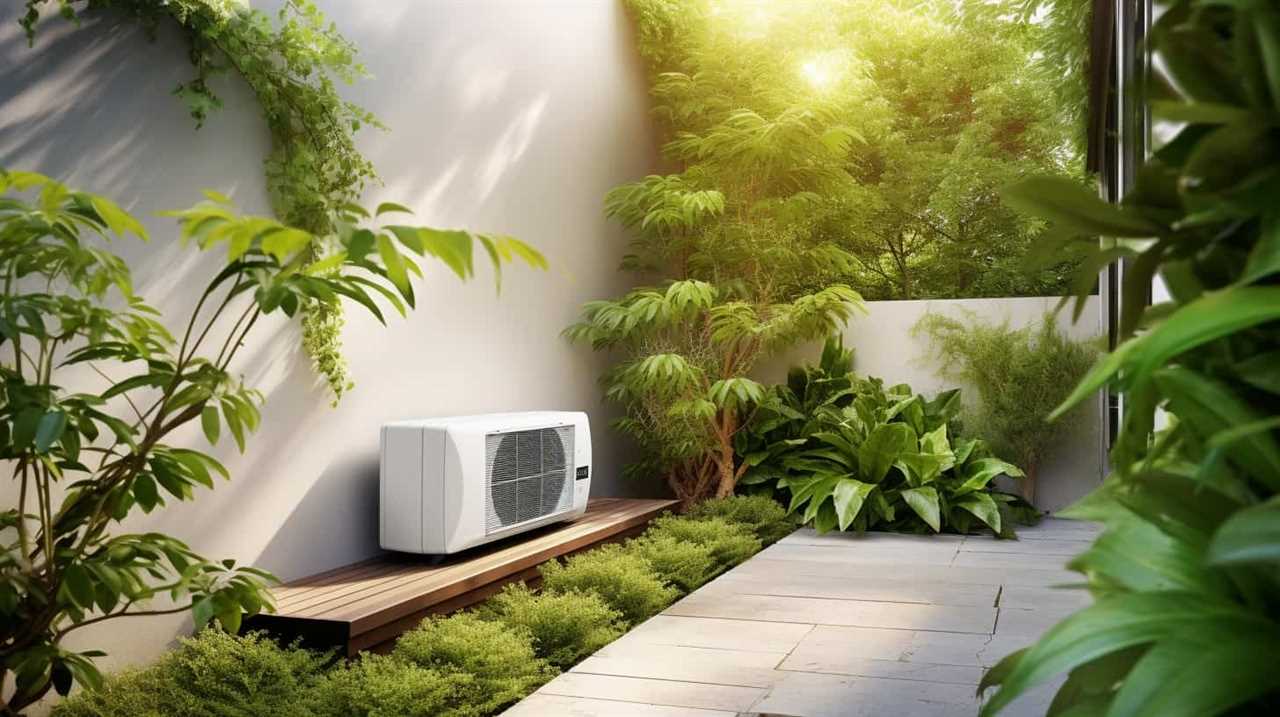
Reduced carbon footprint: By utilizing renewable energy sources, such as the heat from the ground or air, heat pumps emit fewer greenhouse gases than fossil fuel-based heating systems. This helps combat climate change and reduces our overall carbon footprint.
Year-round comfort: Heat pumps can provide both heating and cooling capabilities, making them versatile and suitable for all seasons. They can extract heat from the environment to warm your home in winter and reverse the process to cool it during summer.
Cost savings: Due to their high energy efficiency, heat pumps can lead to substantial cost savings on monthly utility bills. Additionally, geothermal heating systems have lower maintenance requirements and a longer lifespan compared to other heating systems, further reducing expenses.
Exploring Renewable Energy Sources for Heating
By harnessing the power of renewable energy sources, such as solar and geothermal, we can significantly reduce our carbon footprint while providing efficient heating solutions. Geothermal heating utilizes the Earth’s natural heat to warm our homes and buildings, while solar heating harnesses the energy from the sun. These renewable energy sources offer numerous benefits, including lower greenhouse gas emissions, lower energy costs, and increased energy independence.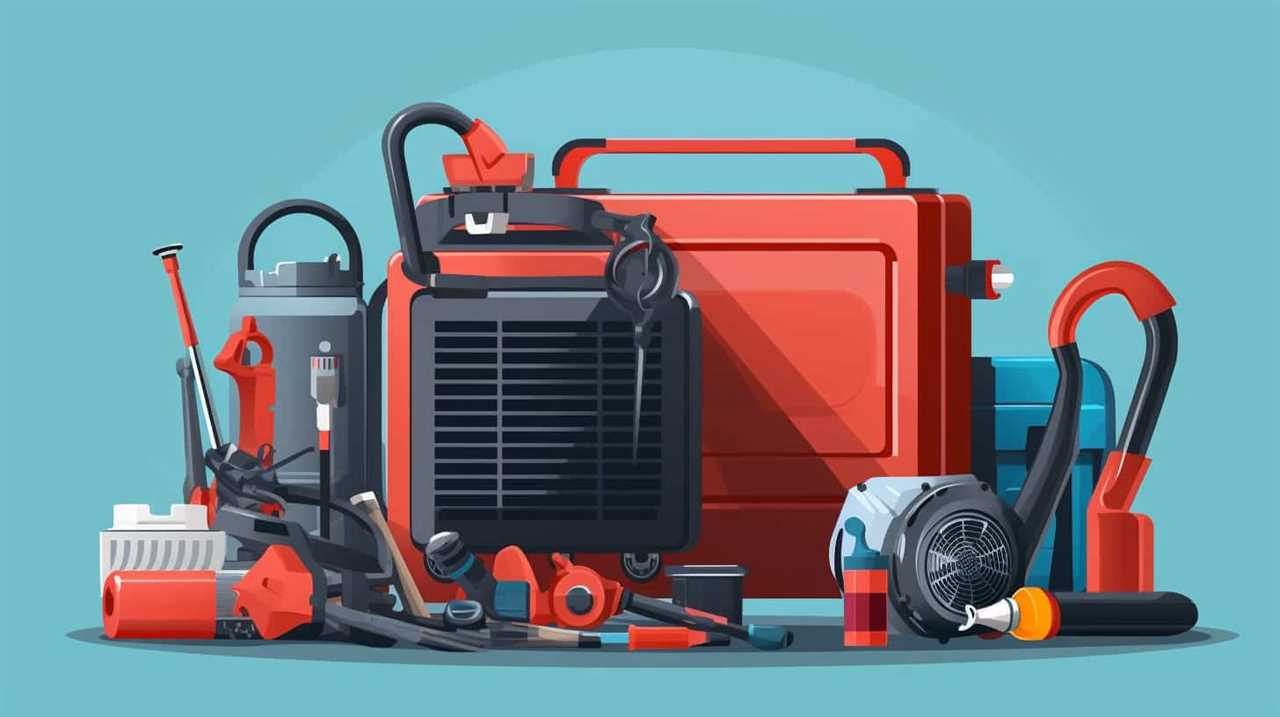
In geothermal heating systems, heat pumps are used to transfer the heat from the ground to the building, providing a reliable and constant source of warmth. Solar heating systems, on the other hand, use solar collectors to absorb the sun’s energy and convert it into heat, which is then used for heating purposes.
To better understand the advantages of geothermal and solar heating, let’s take a look at the following table:
| Renewable Energy Source | Advantages |
|---|---|
| Geothermal Heating | – High energy efficiency |
- Minimal environmental impact
- Reliable and constant heat supply | | Solar Heating | – Abundant and renewable energy source
- Reduced reliance on fossil fuels
- Lower energy costs |
The Role of Energy Efficiency in Reducing Carbon Footprint
One of the key ways to reduce our carbon footprint is by improving energy efficiency in our heating systems. By incorporating energy efficient appliances and sustainable building design, we can significantly decrease our energy consumption and greenhouse gas emissions.
Here are four reasons why energy efficiency plays a crucial role in reducing our carbon footprint:
Lower energy consumption: Energy efficient appliances are designed to use less energy while still providing the same level of comfort. This means less energy is needed to heat our homes, resulting in reduced carbon emissions.
Reduced reliance on fossil fuels: Energy efficiency measures can help us decrease our dependence on fossil fuels for heating. By using renewable energy sources such as solar or geothermal, we can further reduce our carbon footprint.
Financial savings: Energy efficient heating systems can lead to significant cost savings over time. By reducing energy consumption, homeowners can lower their utility bills and save money while also reducing their carbon footprint.
Climate change mitigation: Improving energy efficiency in heating systems is a practical and effective way to mitigate climate change. By reducing carbon emissions, we can contribute to the global effort to combat the adverse effects of climate change.

Green Heating Solutions for a Sustainable Future
As we look to the future, we can achieve a sustainable and eco-friendly heating system by implementing green heating solutions. Two key solutions that hold great promise are solar powered heating and geothermal technology. Solar powered heating utilizes the sun’s energy to generate heat, reducing our reliance on fossil fuels and lowering carbon emissions. This technology harnesses the power of solar panels to convert sunlight into usable energy for heating purposes. On the other hand, geothermal technology involves tapping into the Earth’s natural heat to warm our homes and buildings. By utilizing the constant temperature beneath the Earth’s surface, geothermal systems provide efficient and renewable heating. Both solar powered heating and geothermal technology offer viable alternatives to traditional heating methods, allowing us to reduce our carbon footprint while enjoying the benefits of a sustainable future.
| Solar Powered Heating | Geothermal Technology | |
|---|---|---|
| – Utilizes sunlight to generate heat | Taps into the Earth’s natural heat | |
| – Reduces reliance on fossil fuels | Provides efficient and renewable heating | |
| – Lowers carbon emissions | Utilizes constant temperature beneath the Earth’s surface | |
| – Utilizes solar panels | Offers a sustainable alternative to traditional heating methods | |
| – Provides a sustainable and eco-friendly heating solution | Allows for a reduction in carbon footprint |
Frequently Asked Questions
How Much Does It Cost to Install a Heat Pump System for Heating?
Cost of installing a heat pump system for heating varies based on factors like size, type, and location. However, a cost comparison shows that heat pumps are more energy-efficient in the long run, leading to significant savings.
Are There Any Government Incentives or Rebates Available for Switching to Green Heating Solutions?
Yes, there are government incentives and rebates available for switching to green heating solutions. These financial benefits can help offset the cost of installation and encourage the adoption of more environmentally-friendly heating systems.
What Is the Average Lifespan of a Heat Pump System Compared to Conventional Heating Methods?
The average lifespan of a heat pump system is significantly longer compared to conventional heating methods. This not only improves heat pump efficiency but also reduces the environmental impact of traditional heating methods.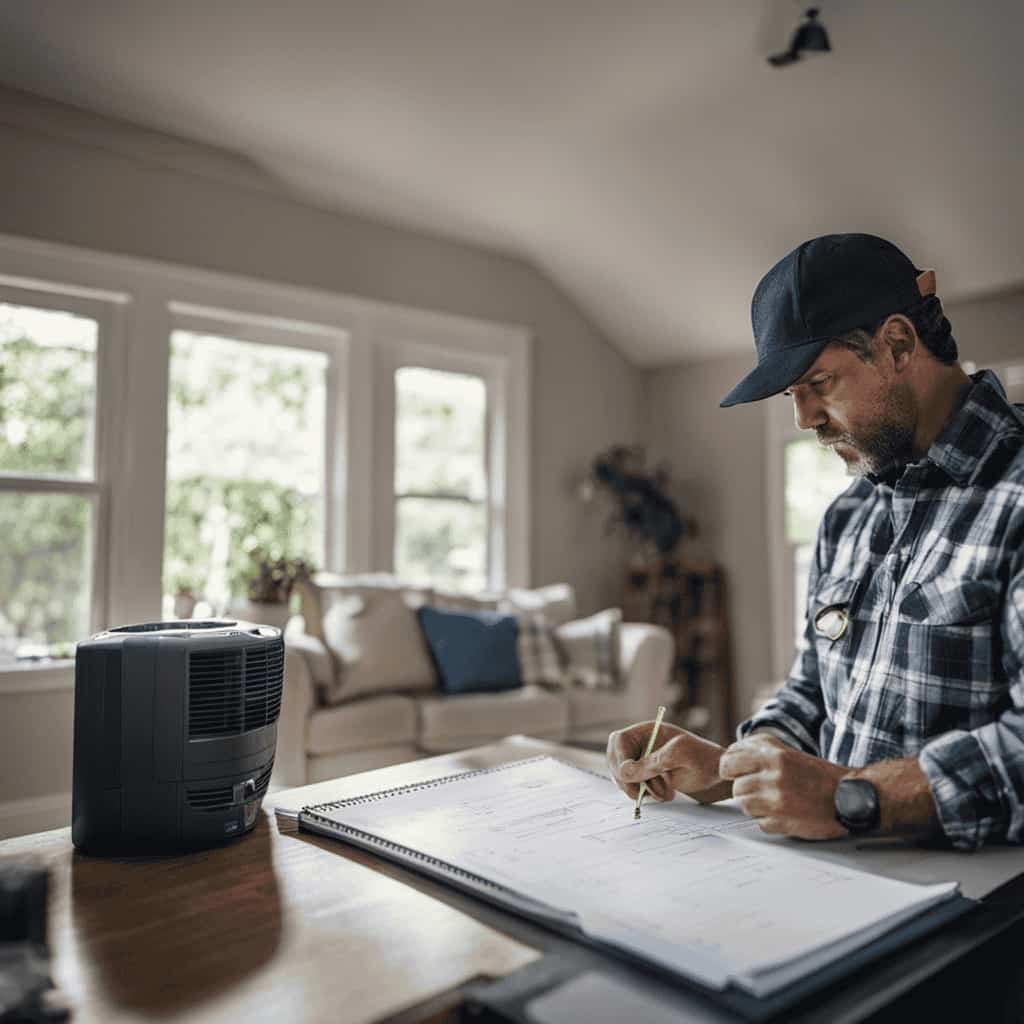
Can Green Heating Solutions Be Integrated With Existing Heating Systems in Older Homes?
Renovating older homes can be a challenge when retrofitting existing heating systems. However, with the right expertise and technology, integrating green heating solutions into older homes is not only possible but also a step towards liberation from carbon-intensive practices.
Are There Any Limitations or Drawbacks to Using Renewable Energy Sources for Heating?
There are limitations and drawbacks to using renewable energy sources for heating. These include higher upfront costs, intermittent energy generation, and the need for backup systems. However, with advancements in technology, these challenges can be overcome, leading to a greener and more sustainable future.
How Does Green Heating Using Heat Pumps Contribute to Reducing Electricity Usage?
Green heating using heat pump efficiency solutions significantly reduces electricity usage. Heat pumps extract renewable heat energy from the environment and use it to heat buildings. By doing so, they consume less electricity compared to traditional heating systems. Heat pump efficiency solutions optimize the performance of these systems, allowing them to provide heating and cooling with minimal electricity input. This reduces energy consumption, lowers carbon emissions, and contributes to a more sustainable and eco-friendly future.
Conclusion
In conclusion, green heating solutions have the potential to revolutionize climate control and significantly reduce our carbon footprint. By utilizing heat pump technology and renewable energy sources, we can achieve both energy efficiency and environmental sustainability.
One interesting statistic to note is that switching to green heating methods can reduce carbon emissions by up to 70%, making it a crucial step towards a more sustainable future.
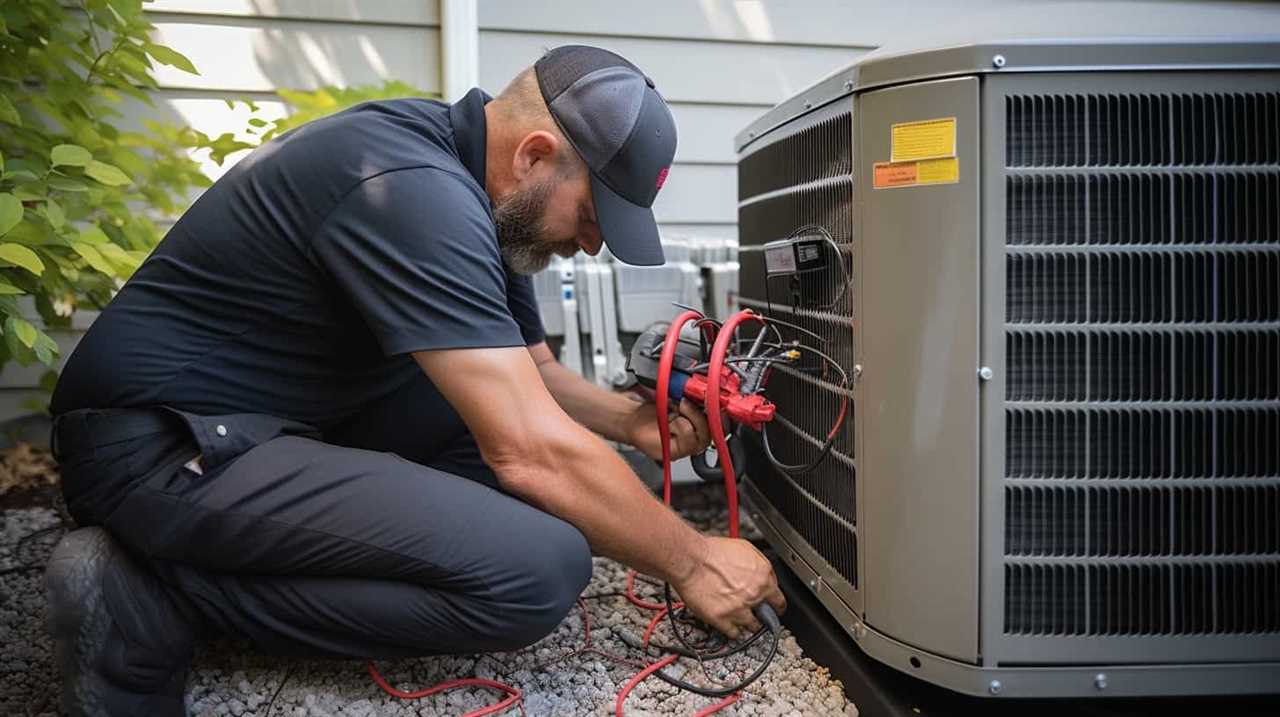
Let’s embrace these solutions and work towards a cleaner and greener planet.
-

 Residential and Commercial Applications2 weeks ago
Residential and Commercial Applications2 weeks agoBest Amana Heat Pump Reviews
-

 Thermal Energy Transfer2 weeks ago
Thermal Energy Transfer2 weeks agoBreakthroughs in Modern Heat Pump Systems: Thermal Energy Edition
-

 Residential and Commercial Applications2 weeks ago
Residential and Commercial Applications2 weeks agoBest Heat Pump
-

 Geothermal Heat Pumps3 months ago
Geothermal Heat Pumps3 months agoUpgrade Your Comfort with Our Efficient HVAC Systems
-

 Air Conditioning3 months ago
Air Conditioning3 months agoExploring Energy-Efficient Air Conditioning Heat Pumps
-

 Geothermal Heat Pumps3 months ago
Geothermal Heat Pumps3 months agoInnovative Geothermal Heat Pump Manufacturers Revolutionize Energy Efficiency
-

 Thermal Energy Transfer1 month ago
Thermal Energy Transfer1 month agoBoost Your Heat Pump Efficiency: Interactive Guide
-

 Residential and Commercial Applications2 weeks ago
Residential and Commercial Applications2 weeks agoBest Portable Heat Pump Heat & AC










